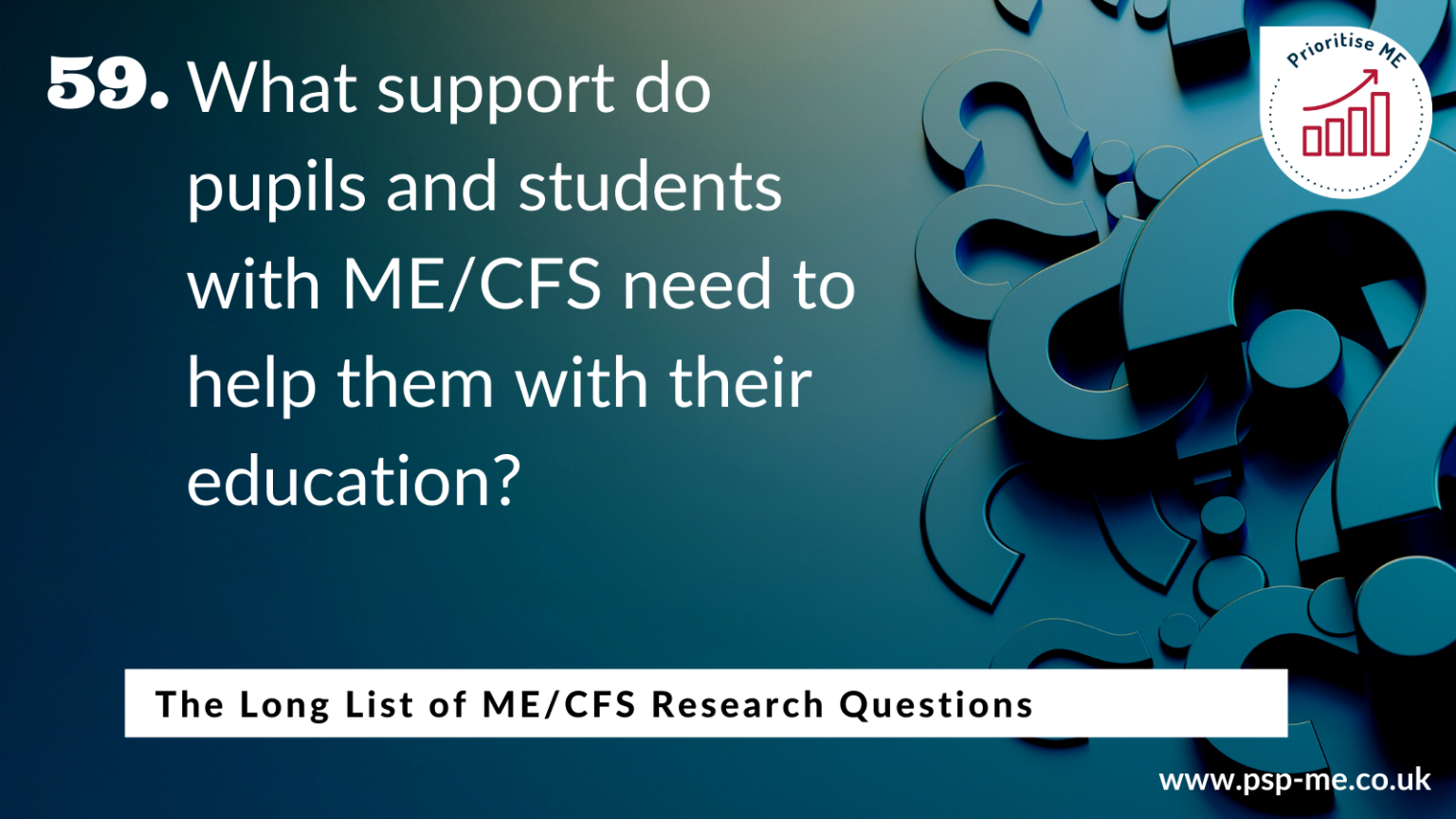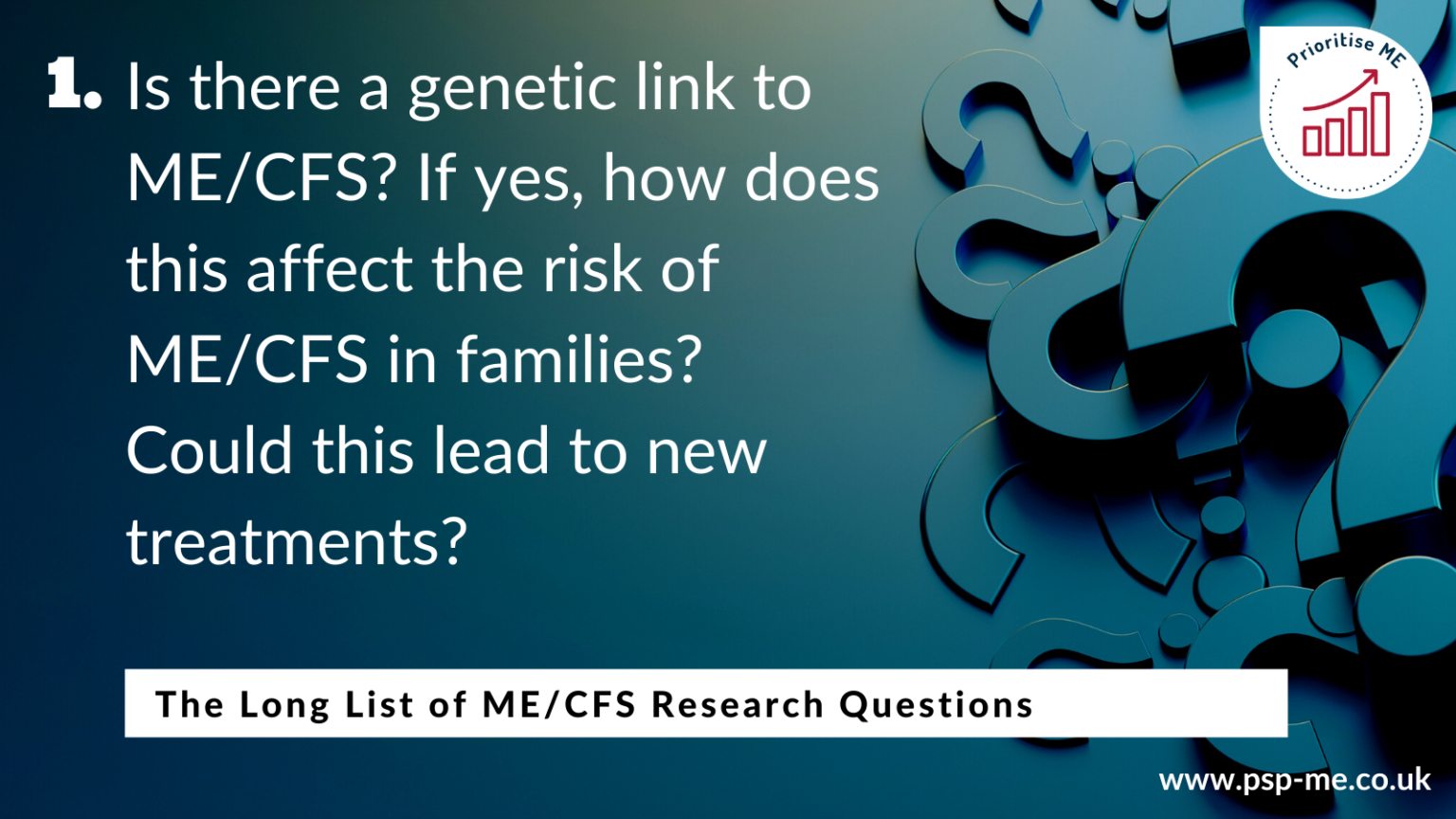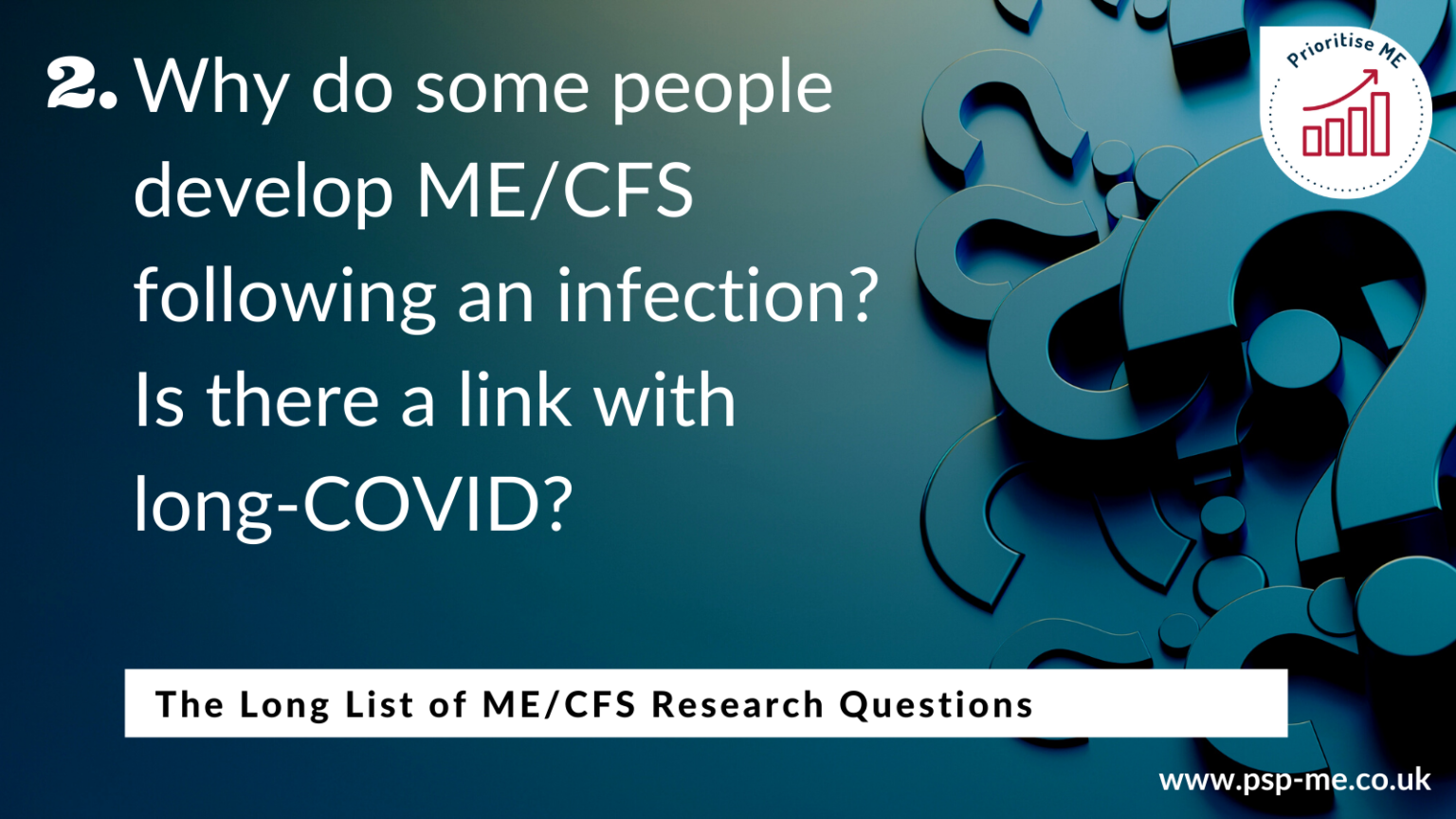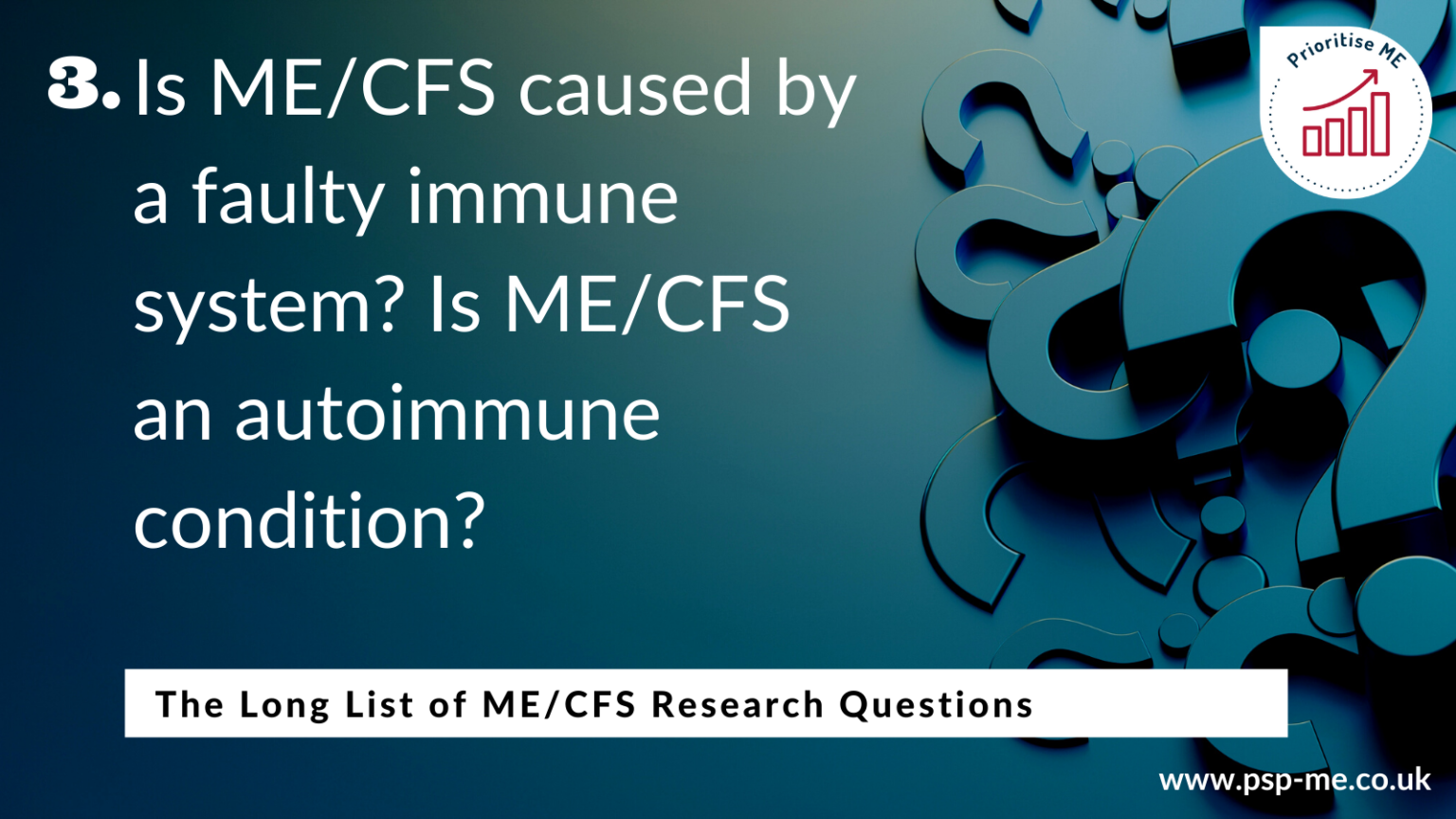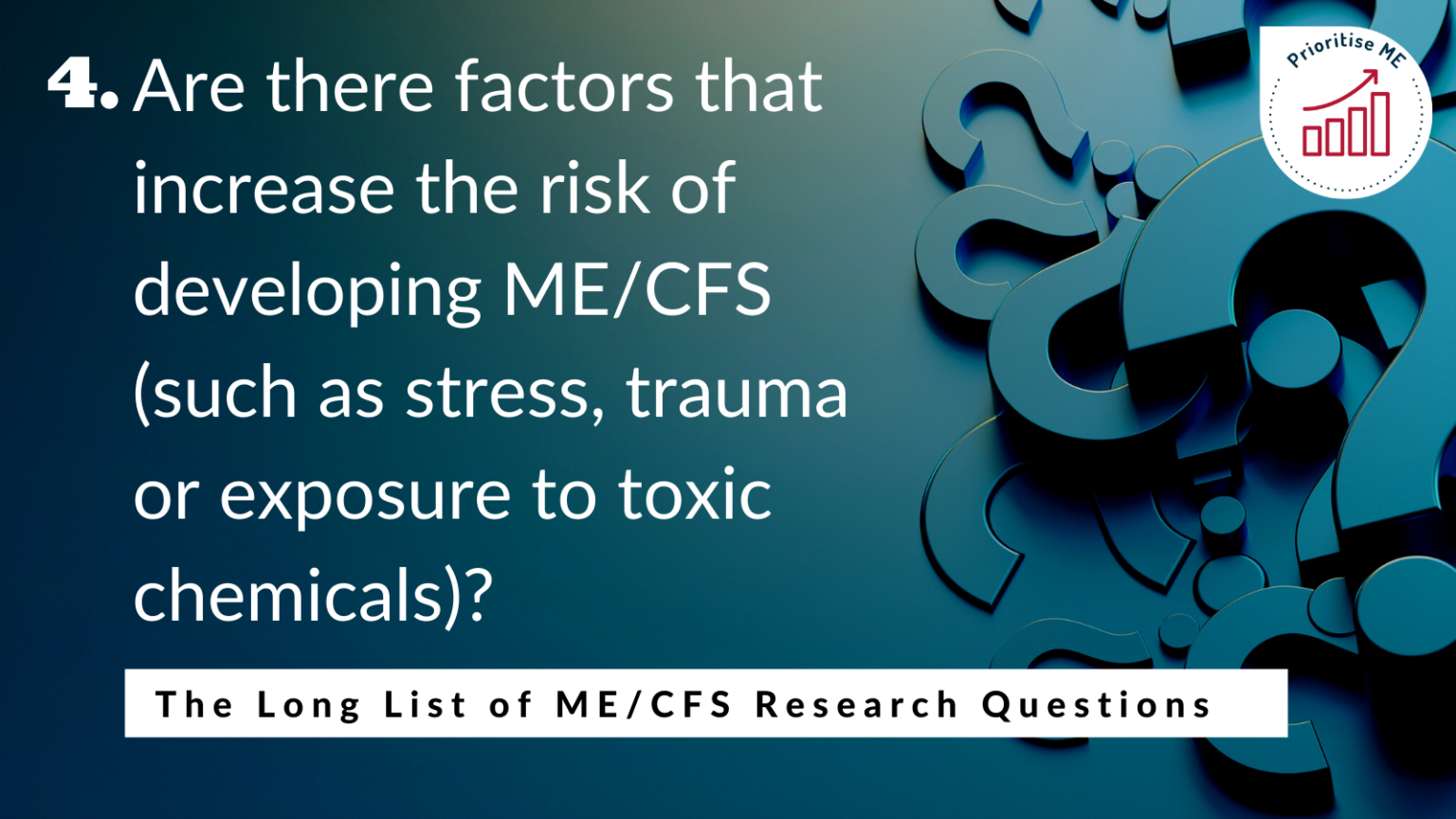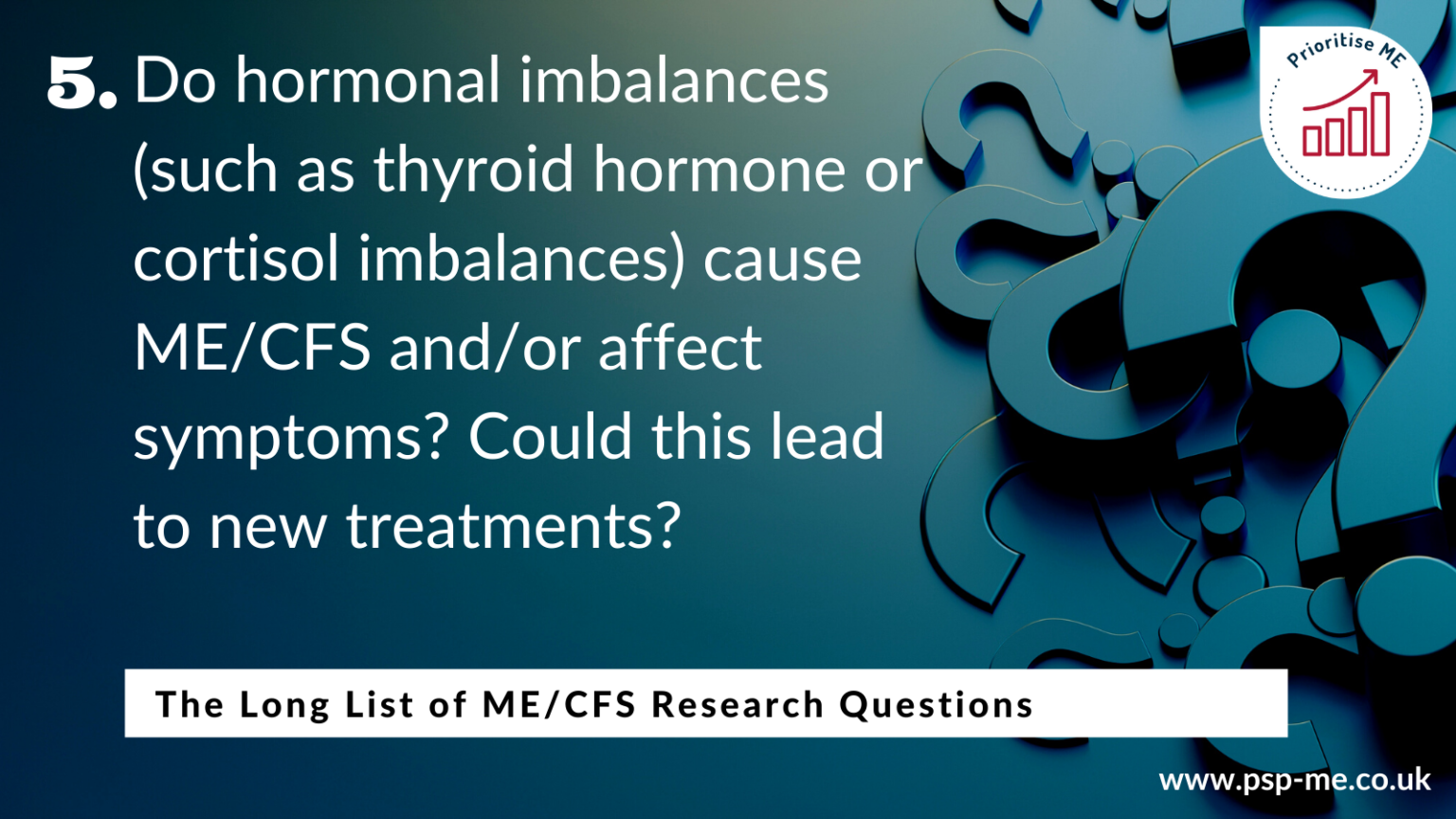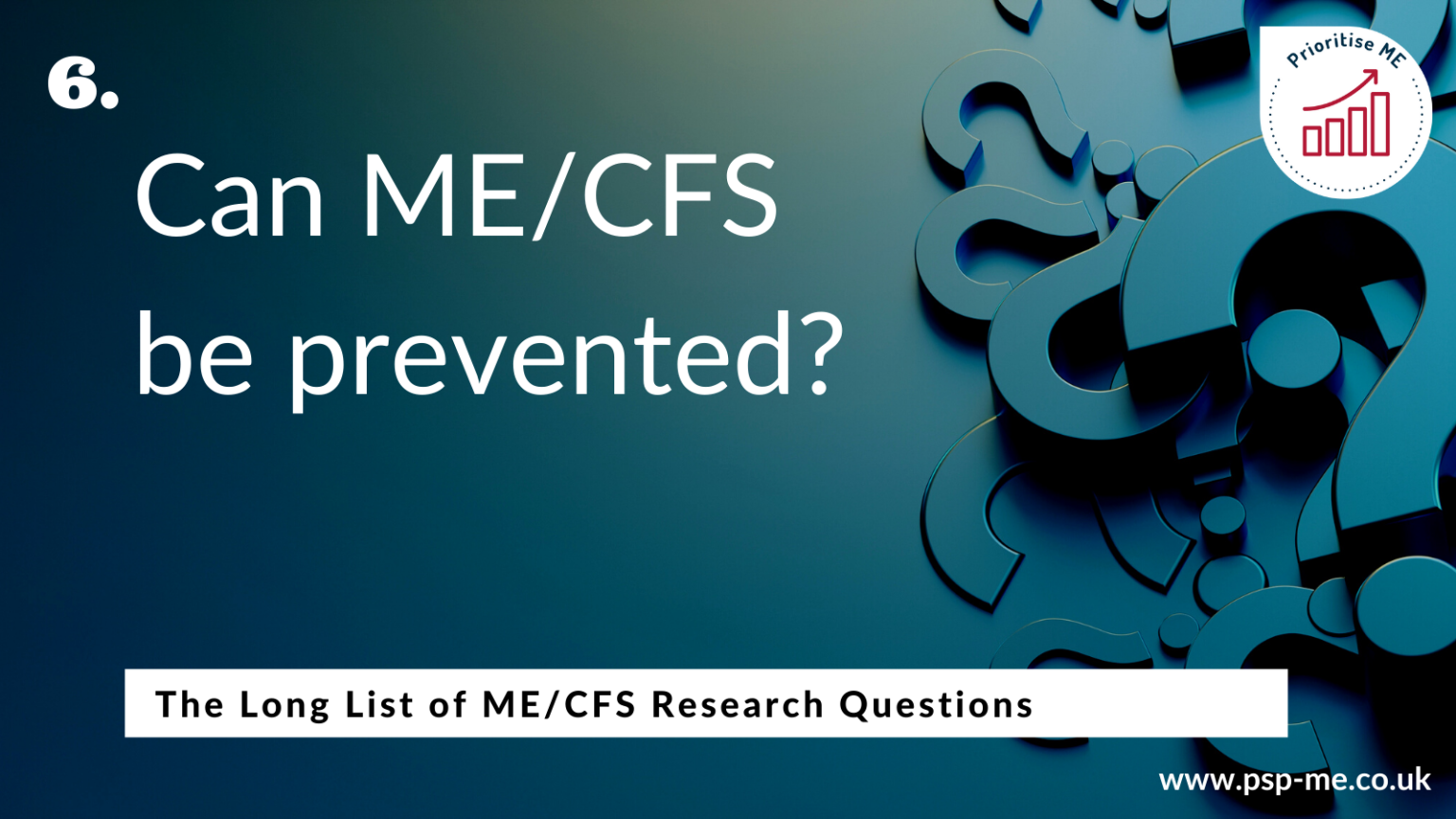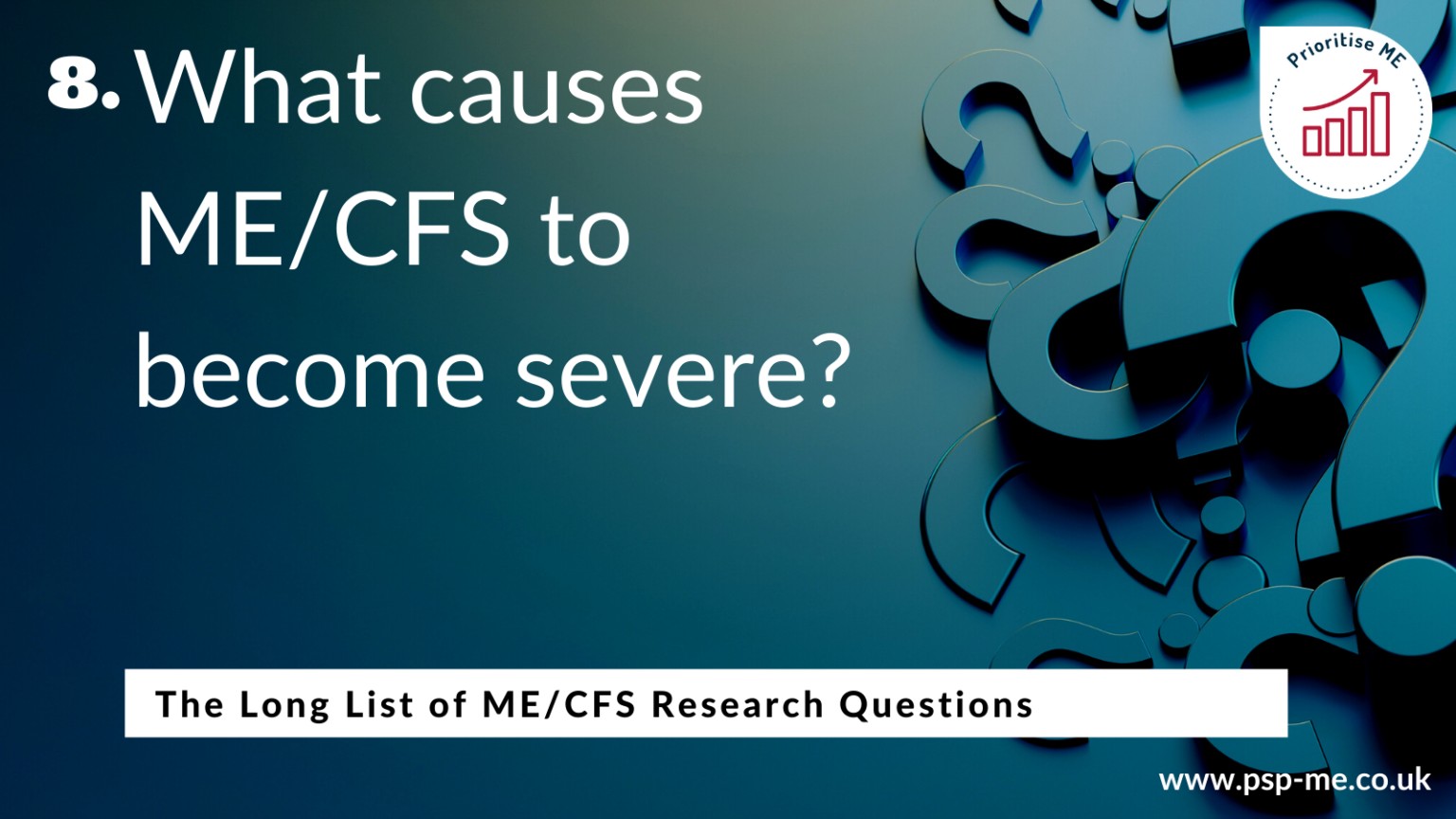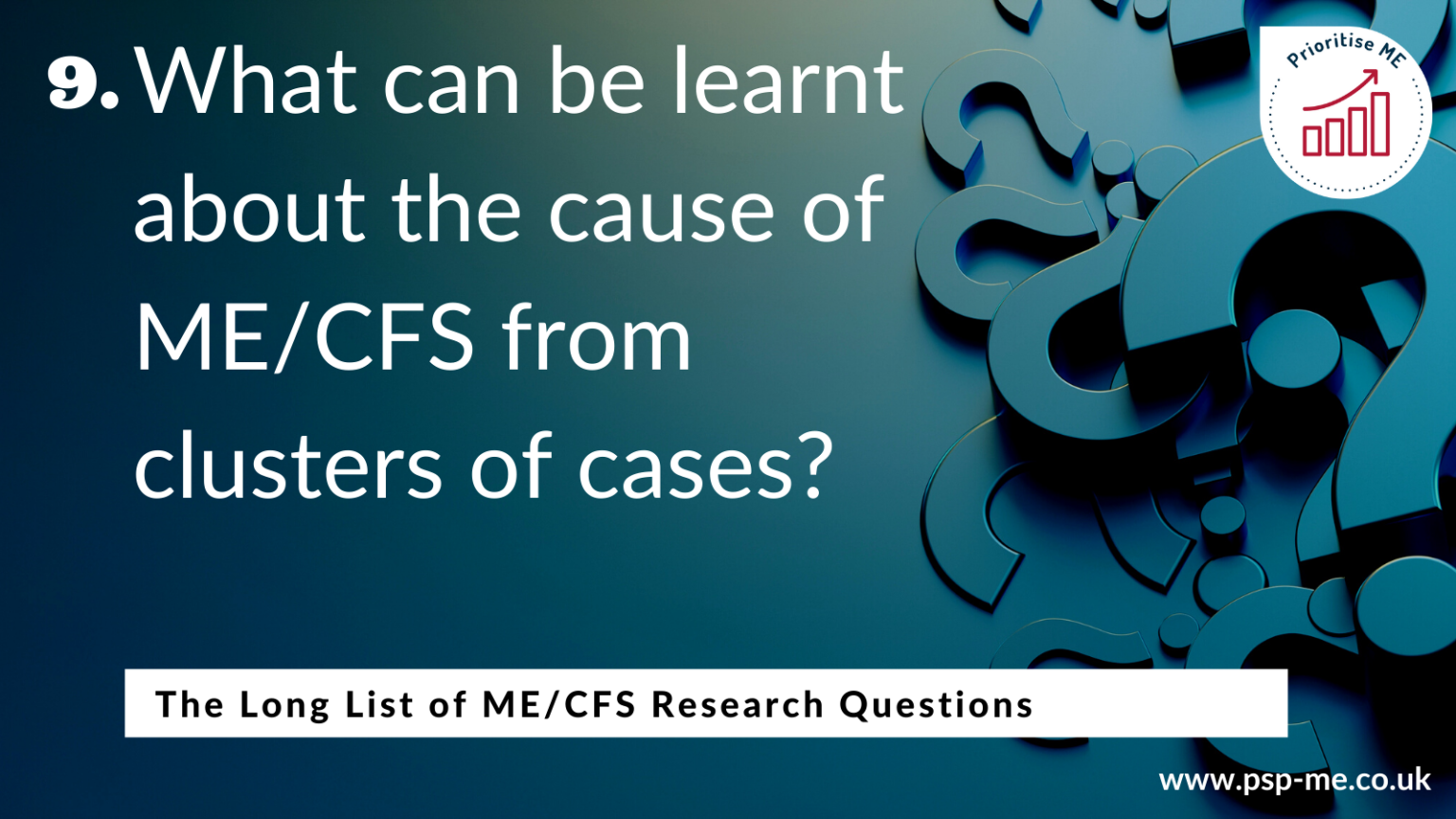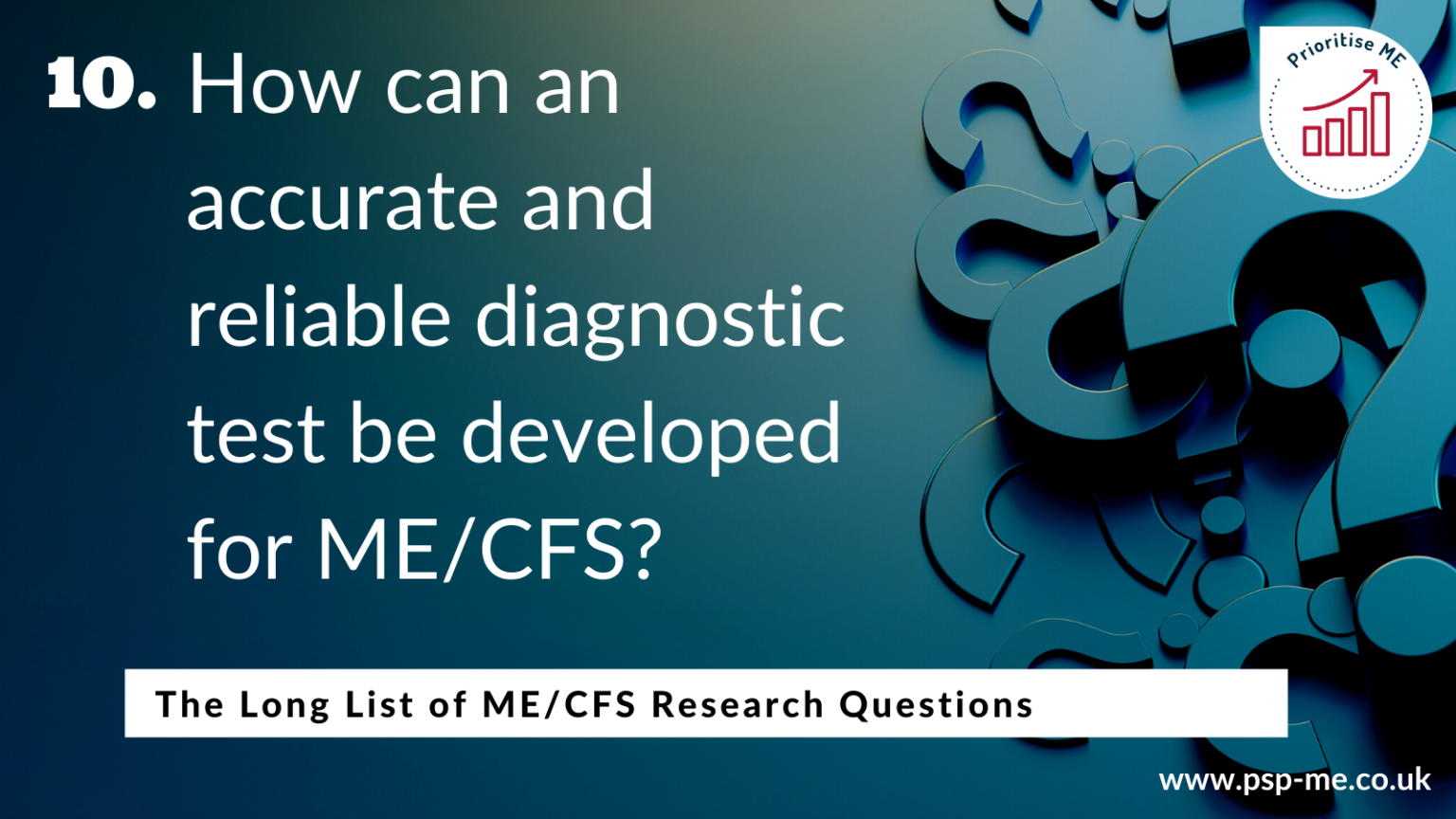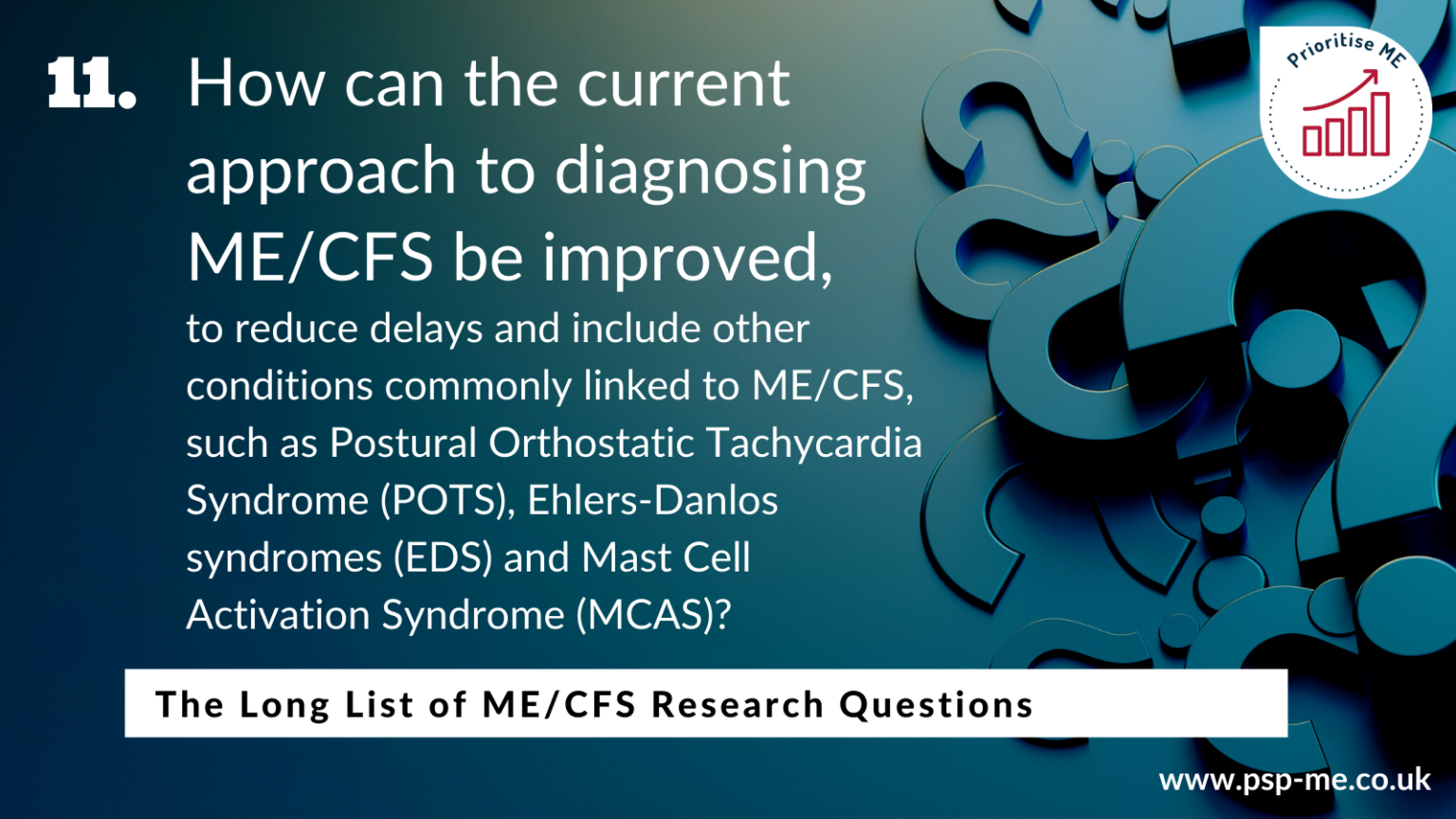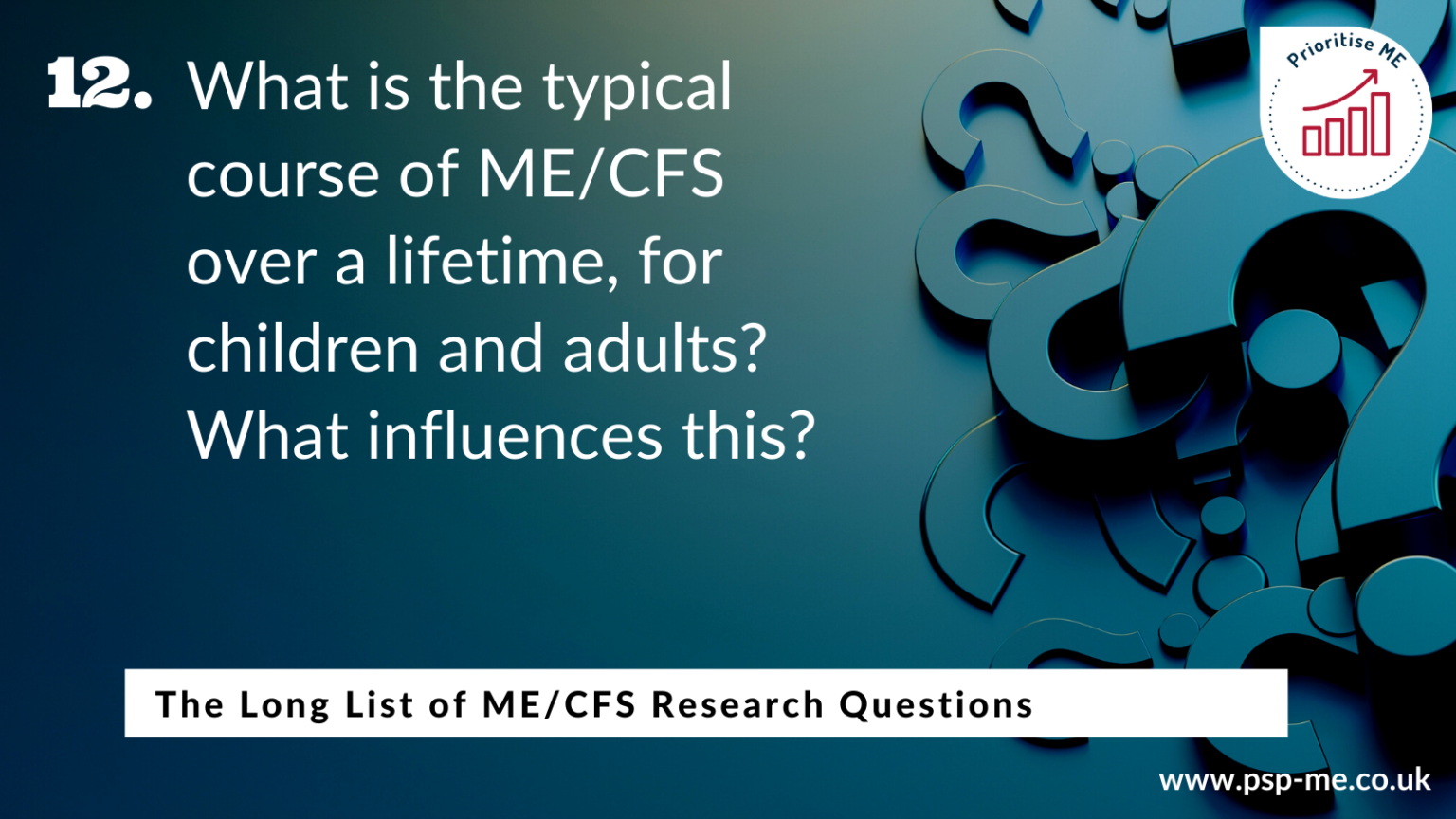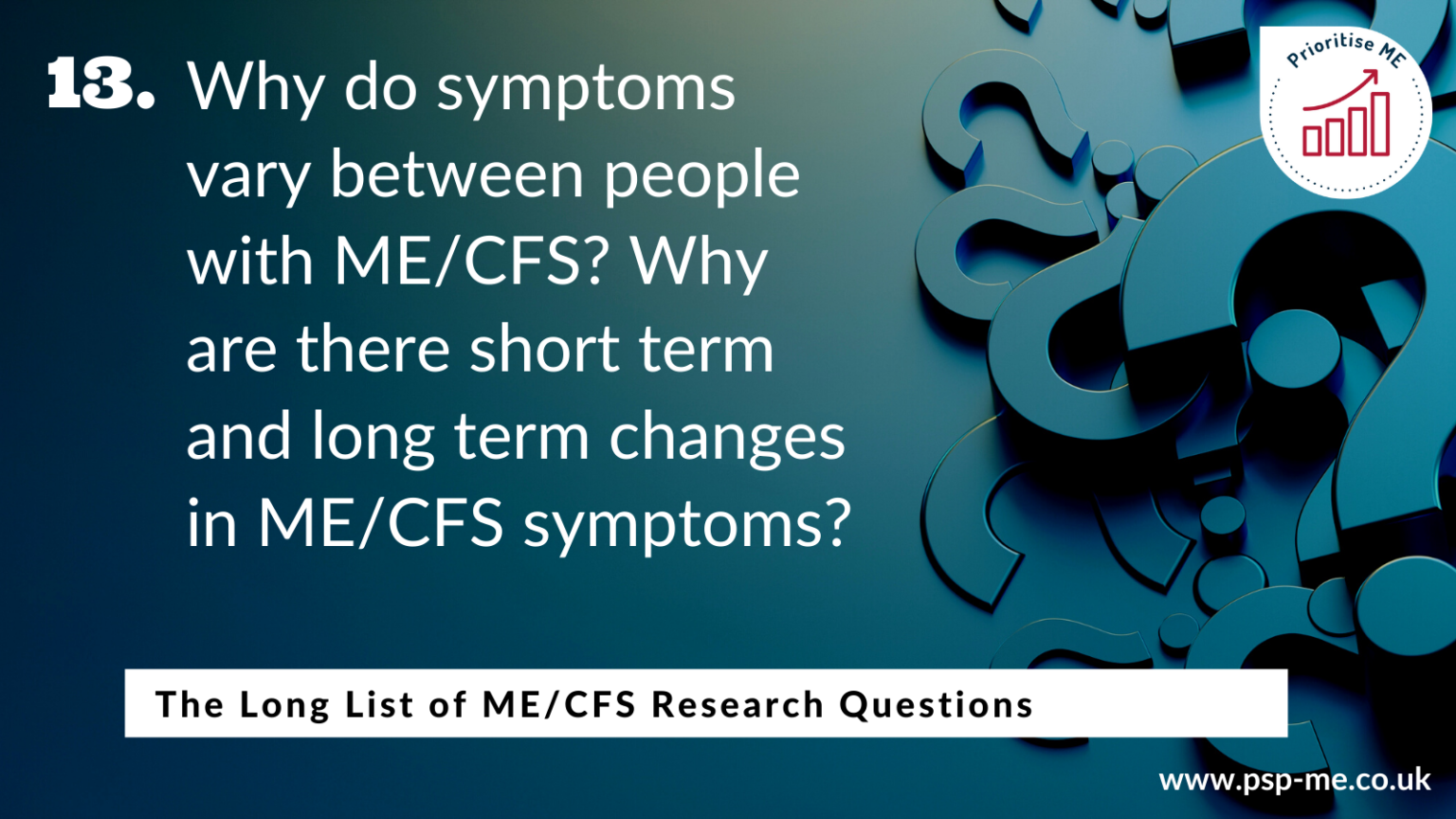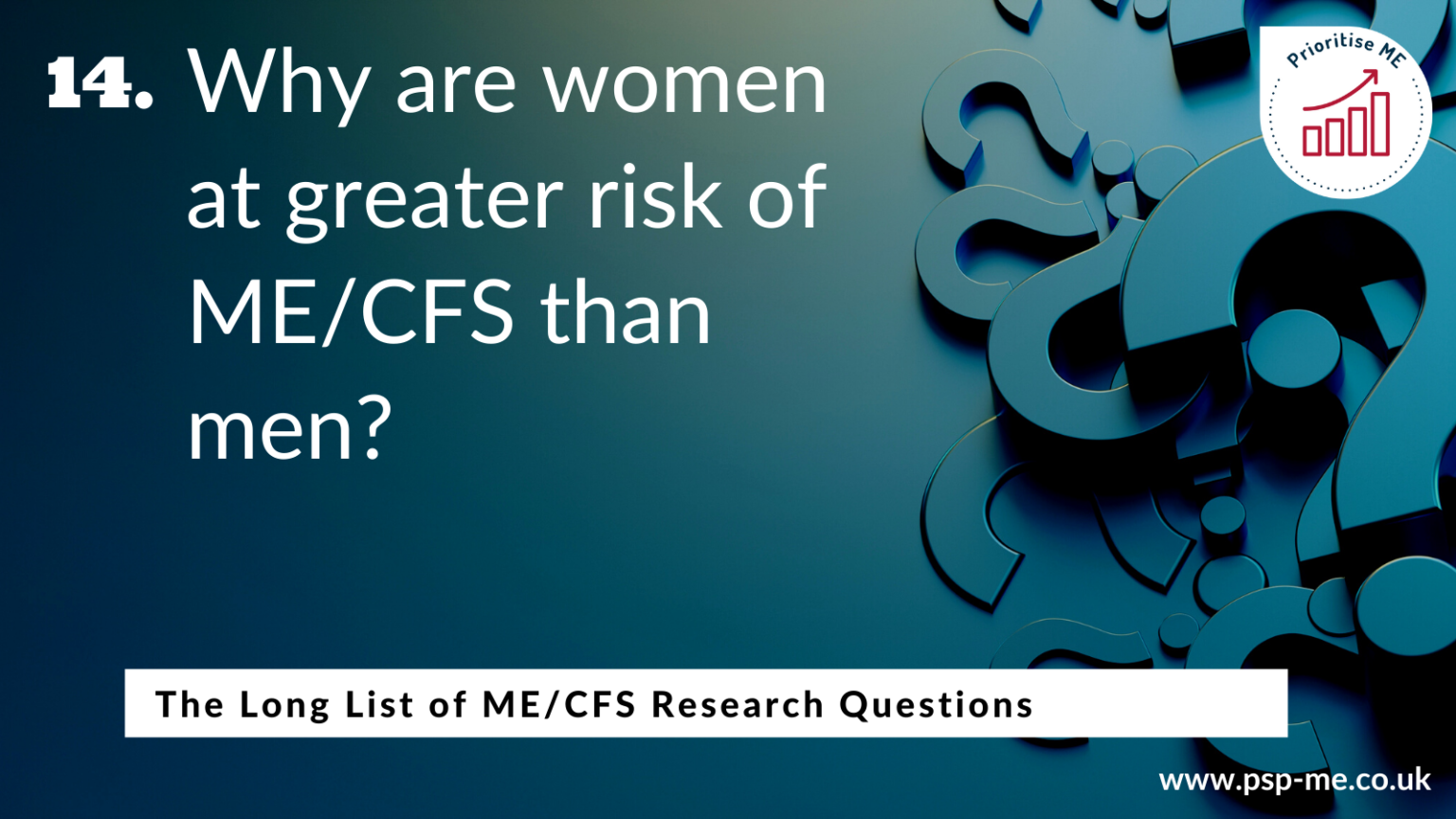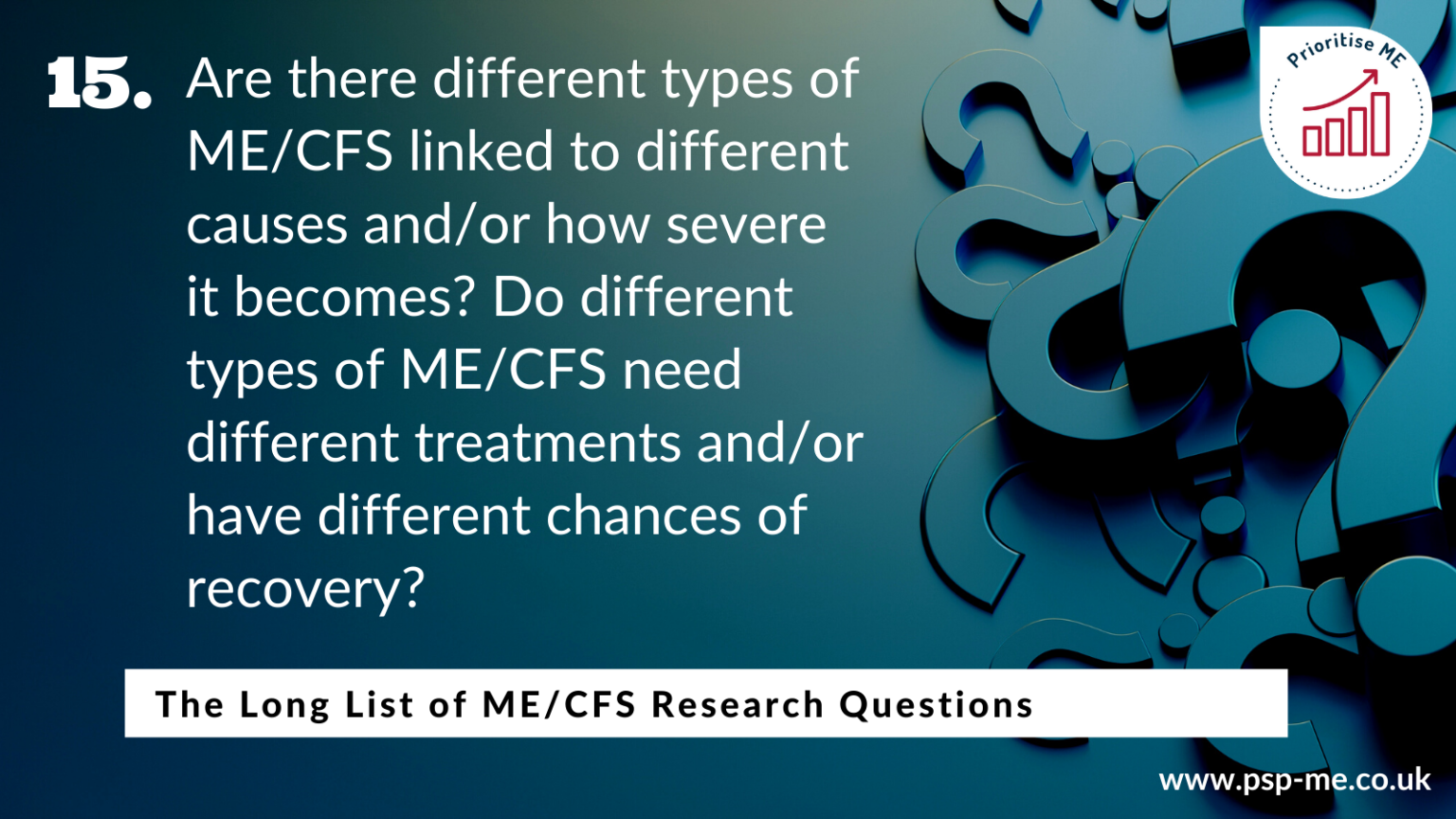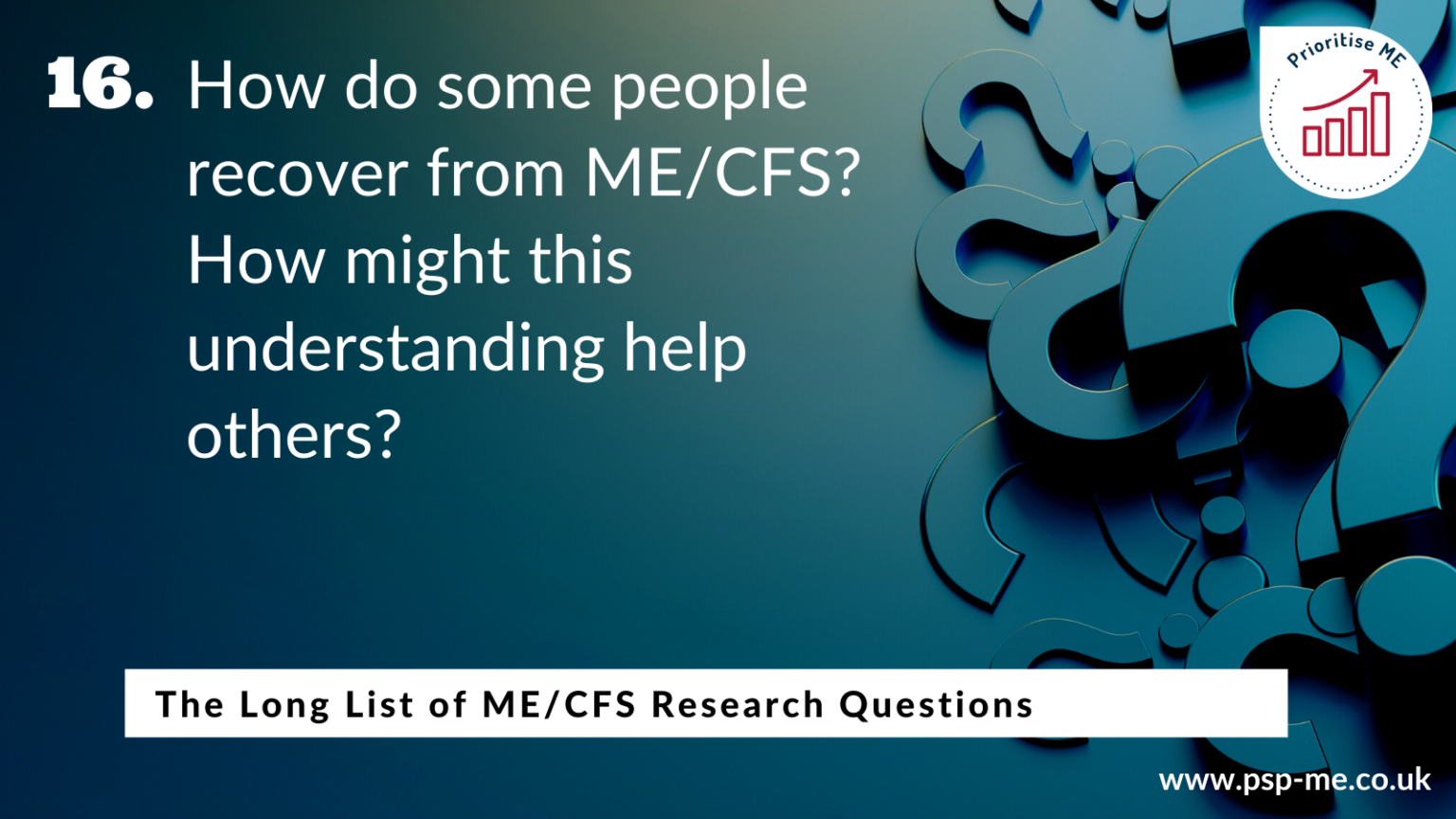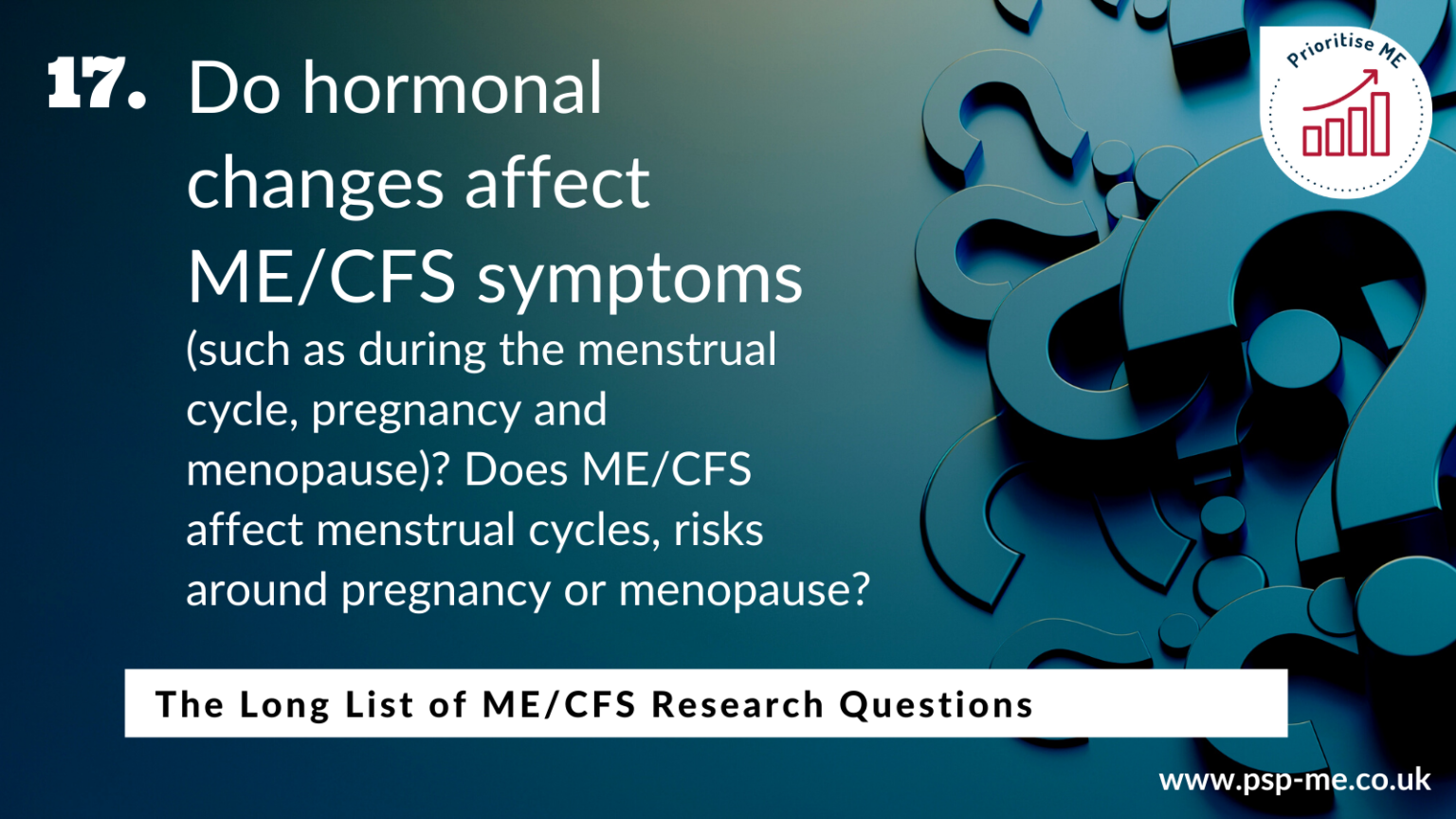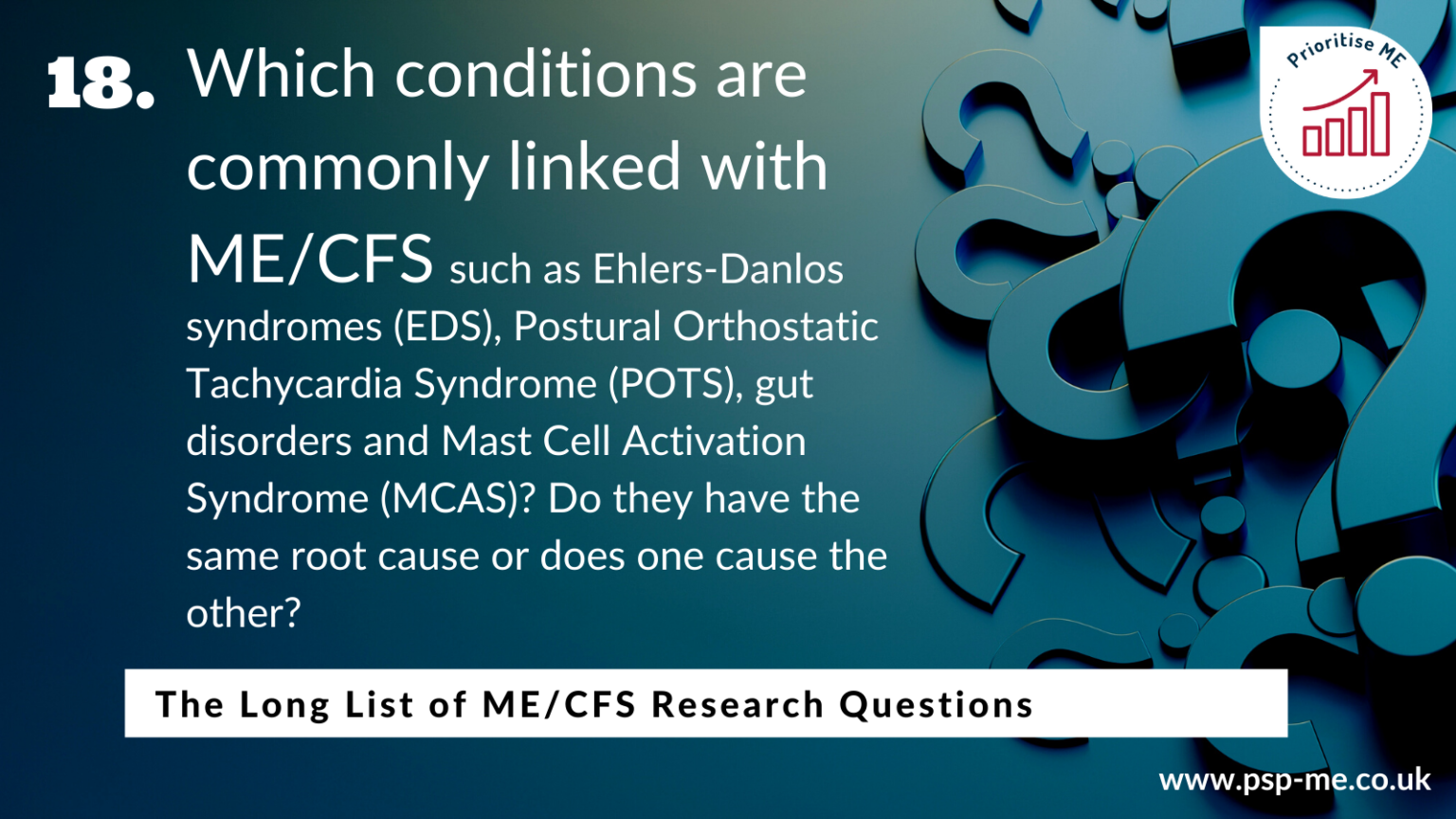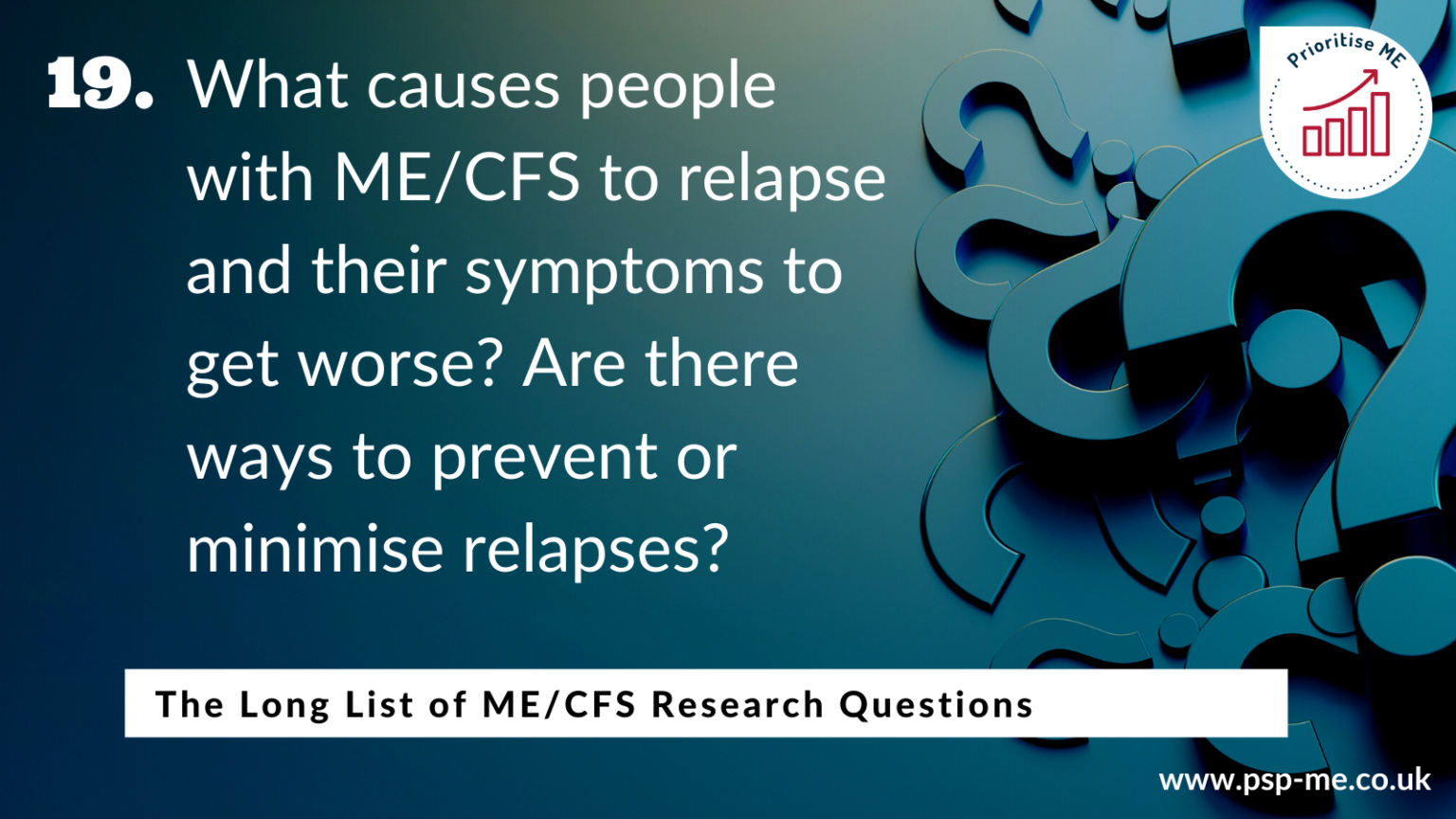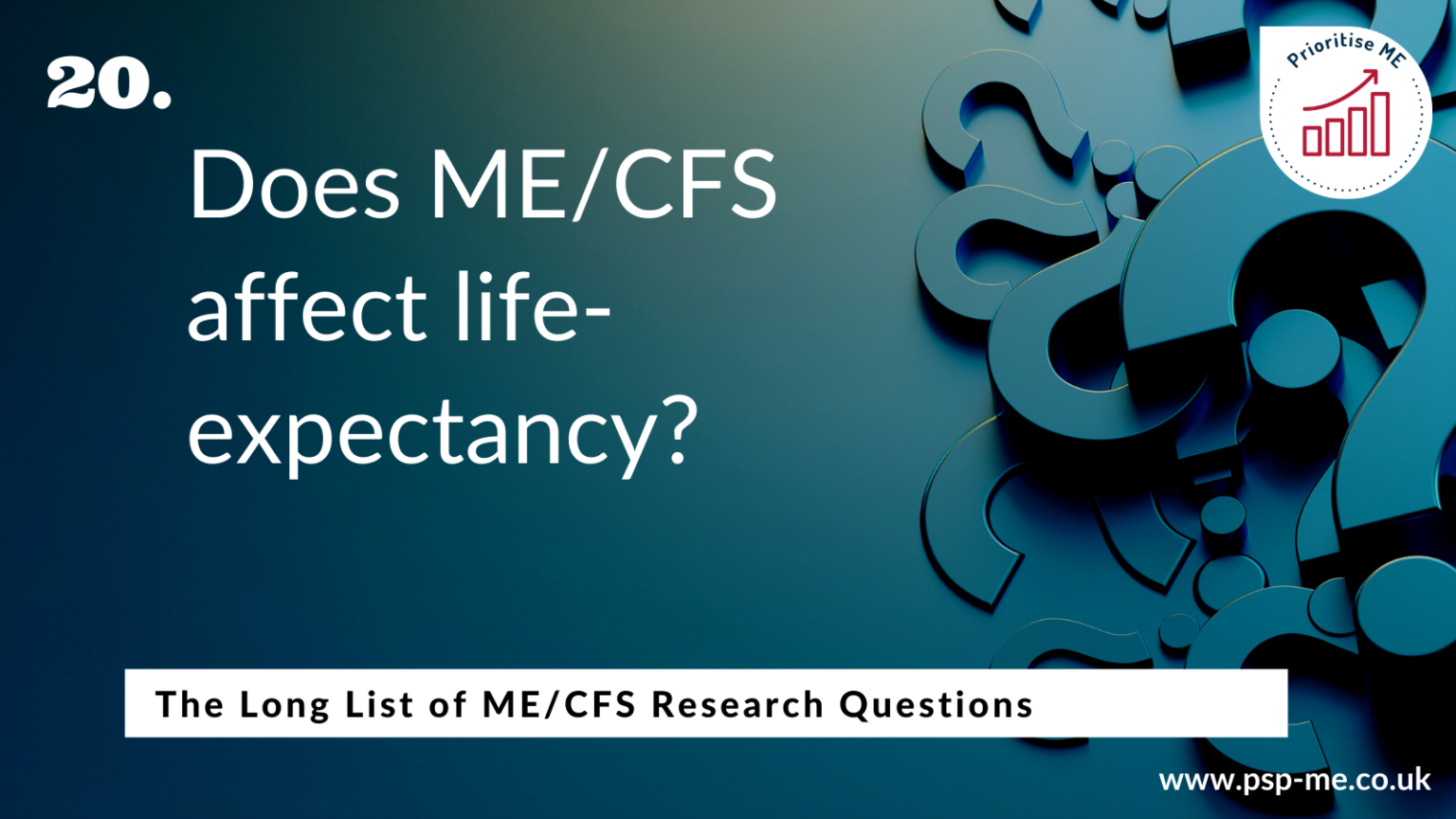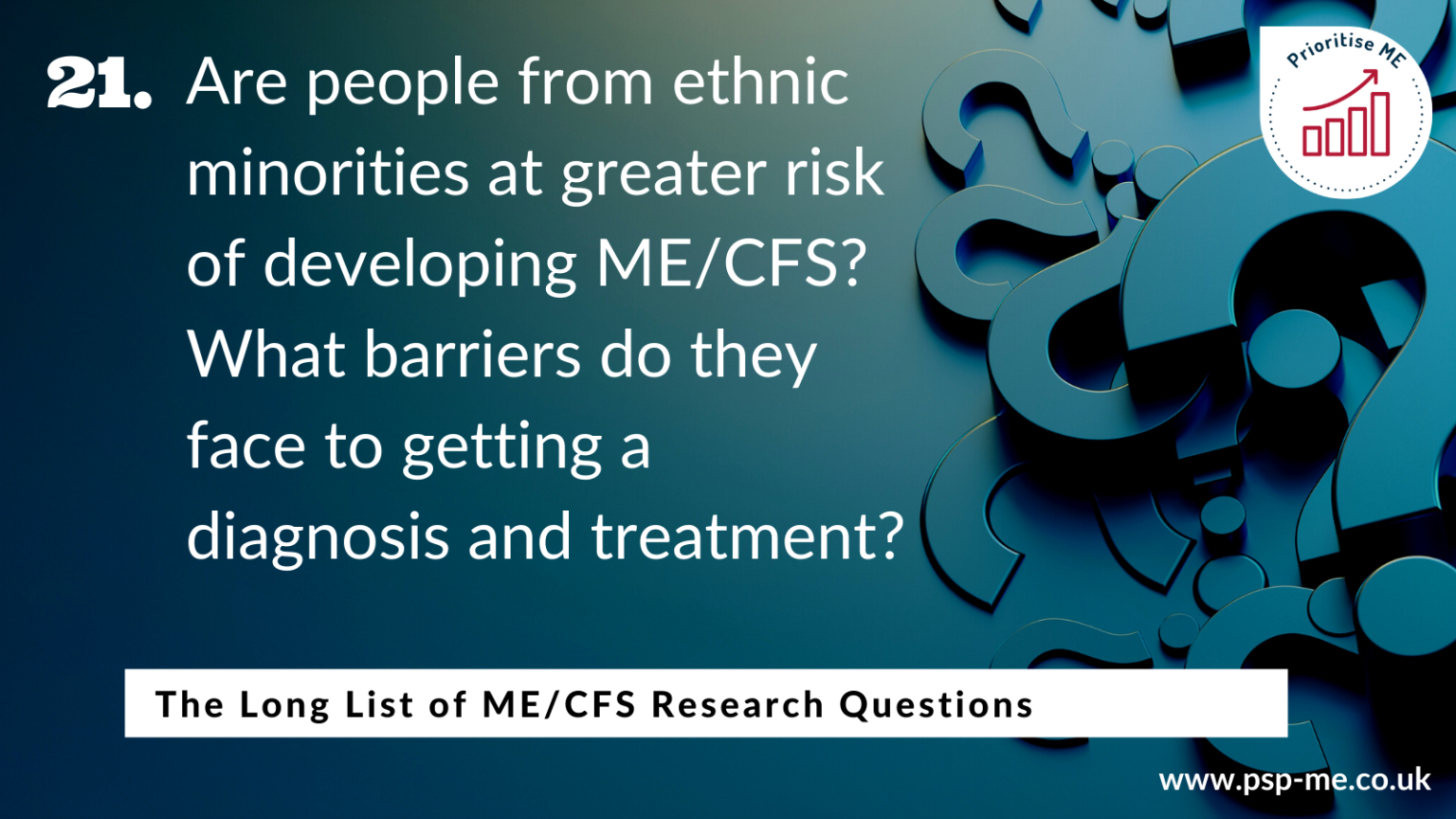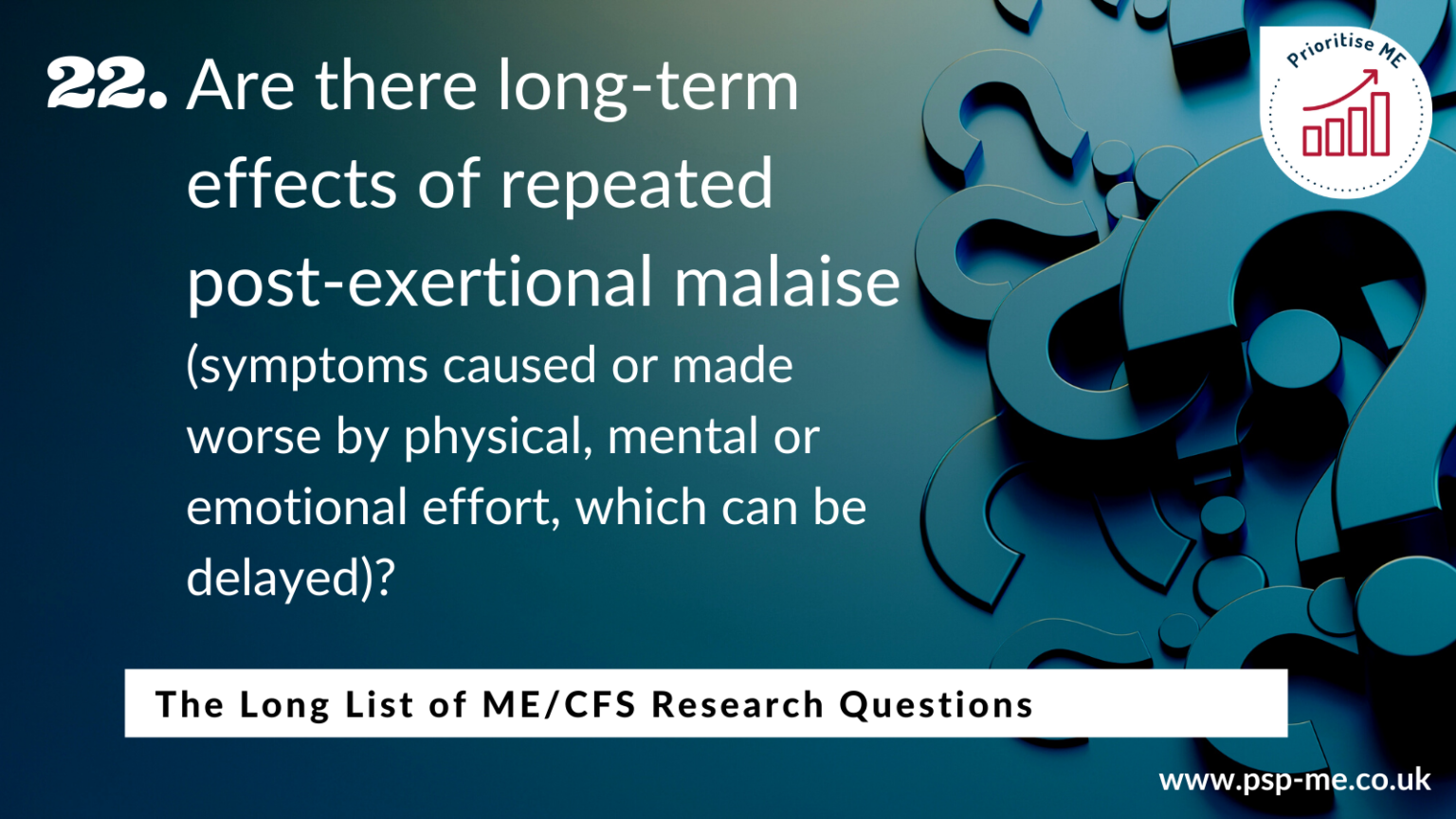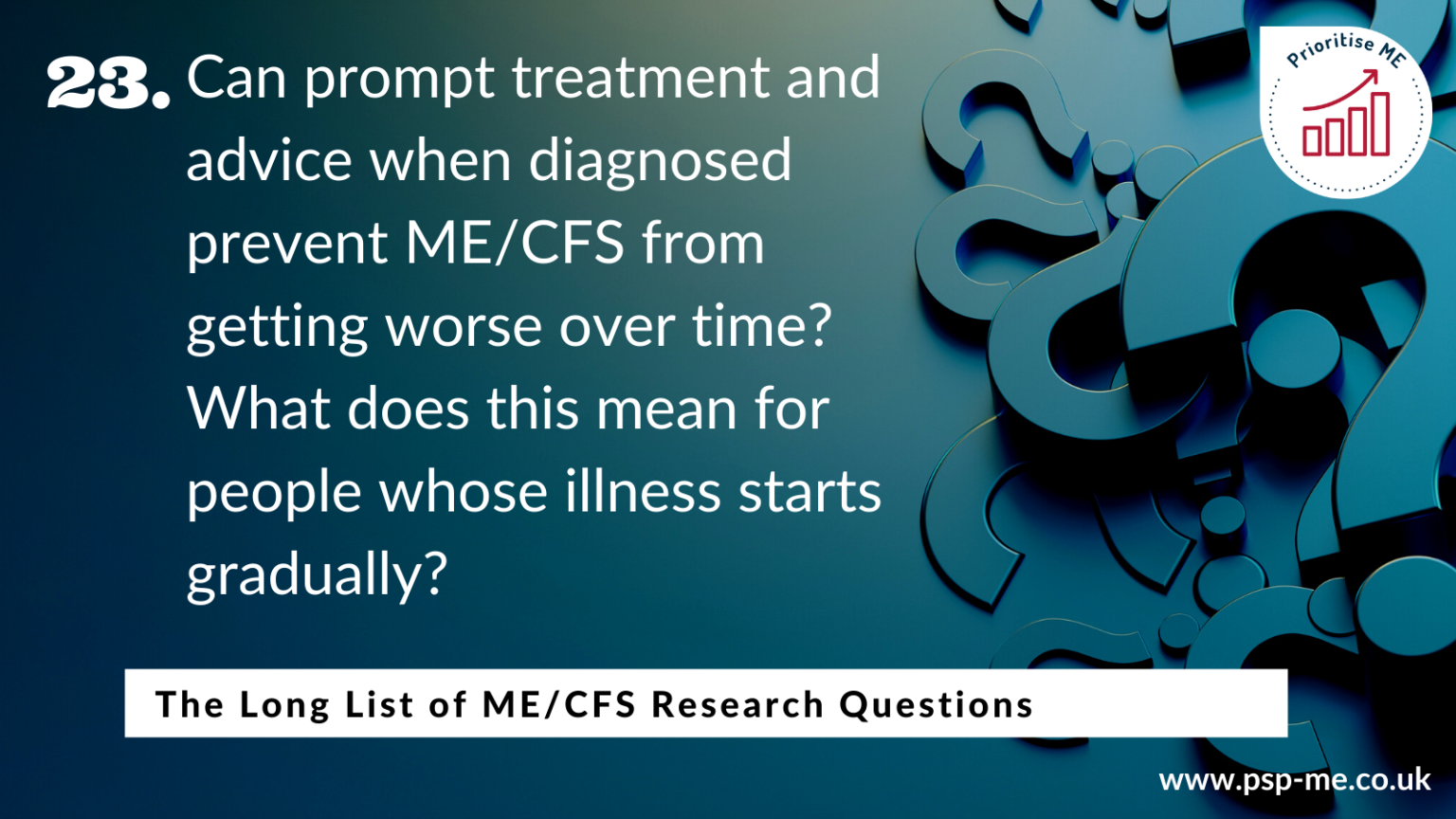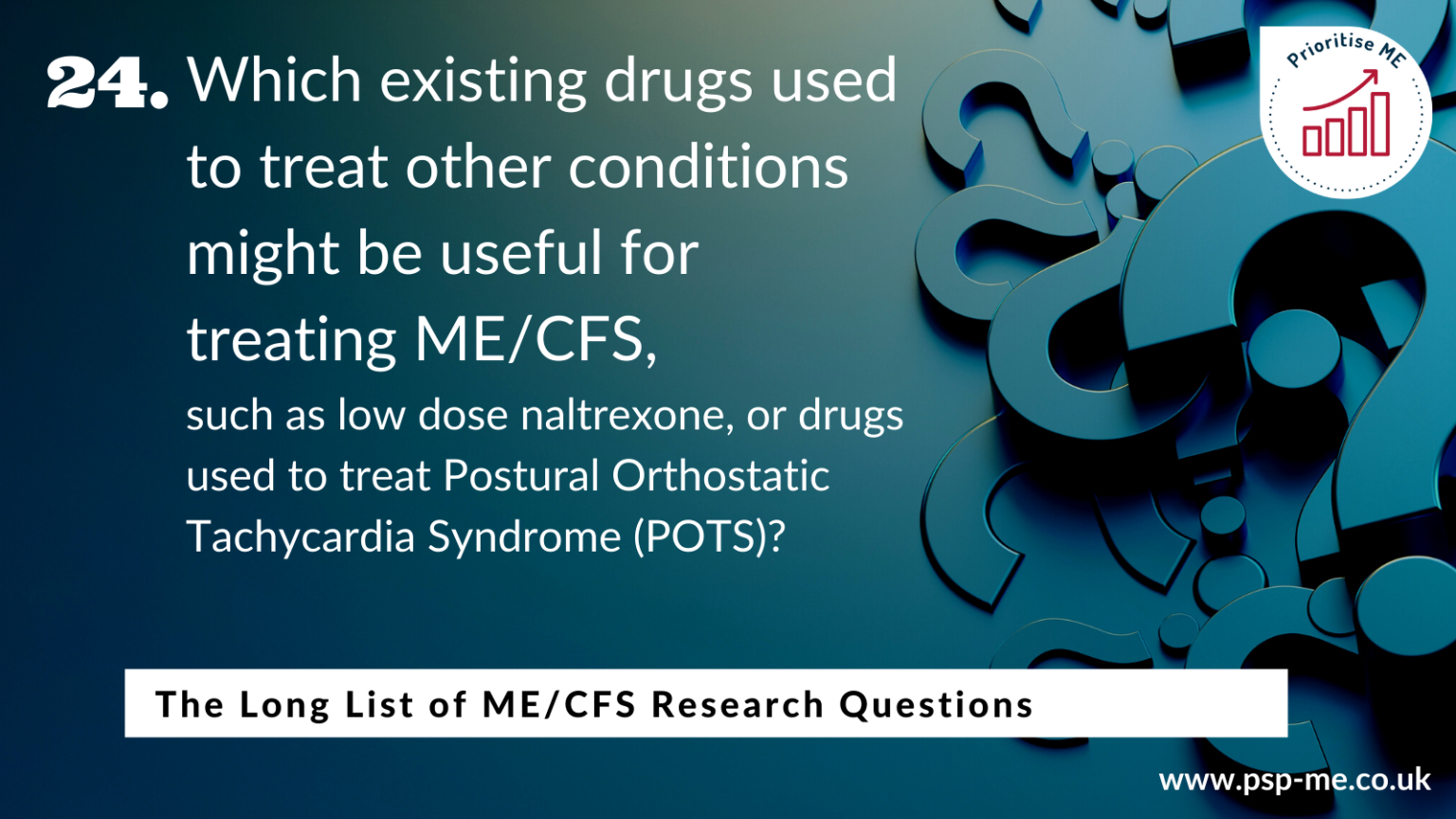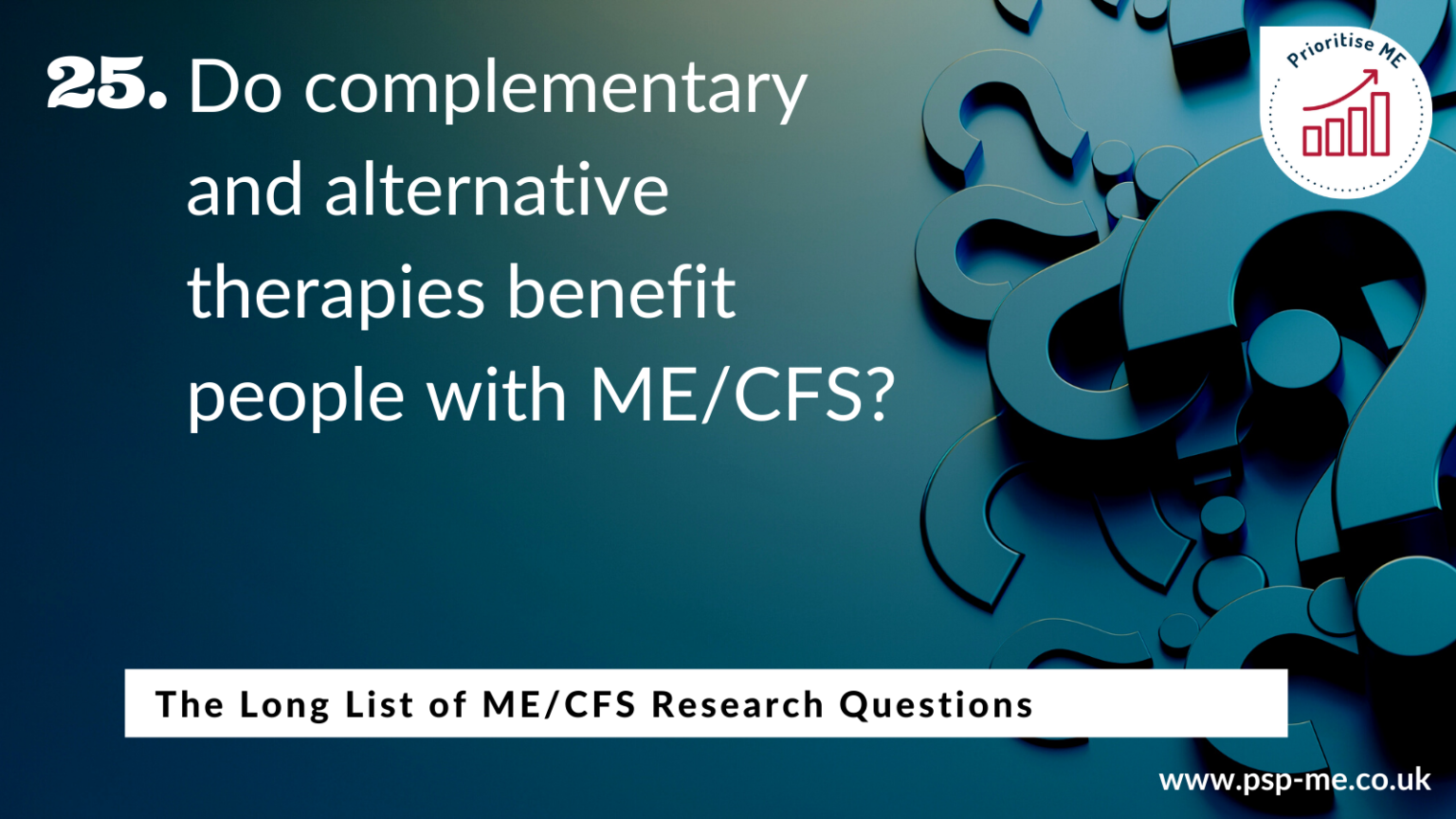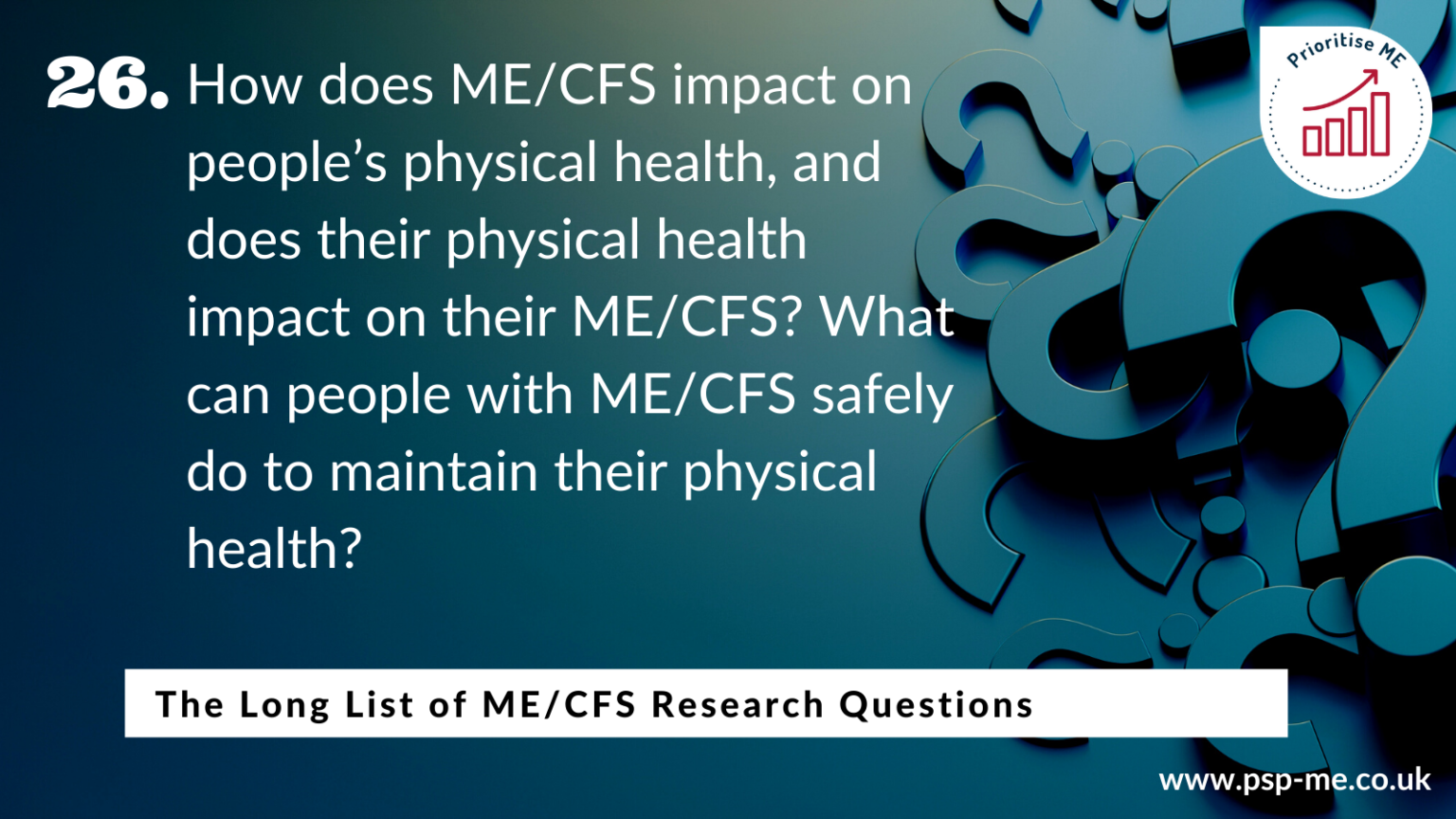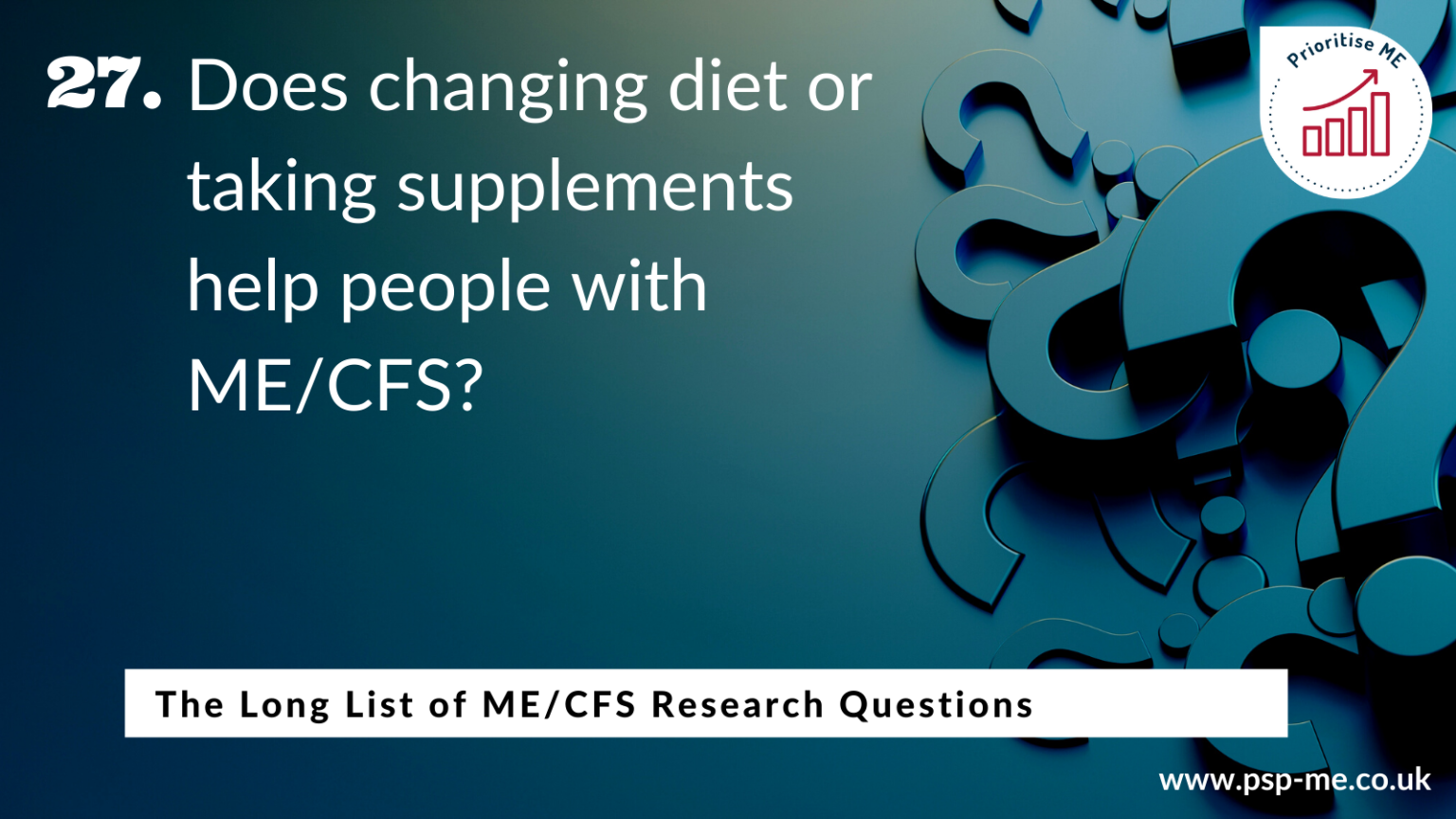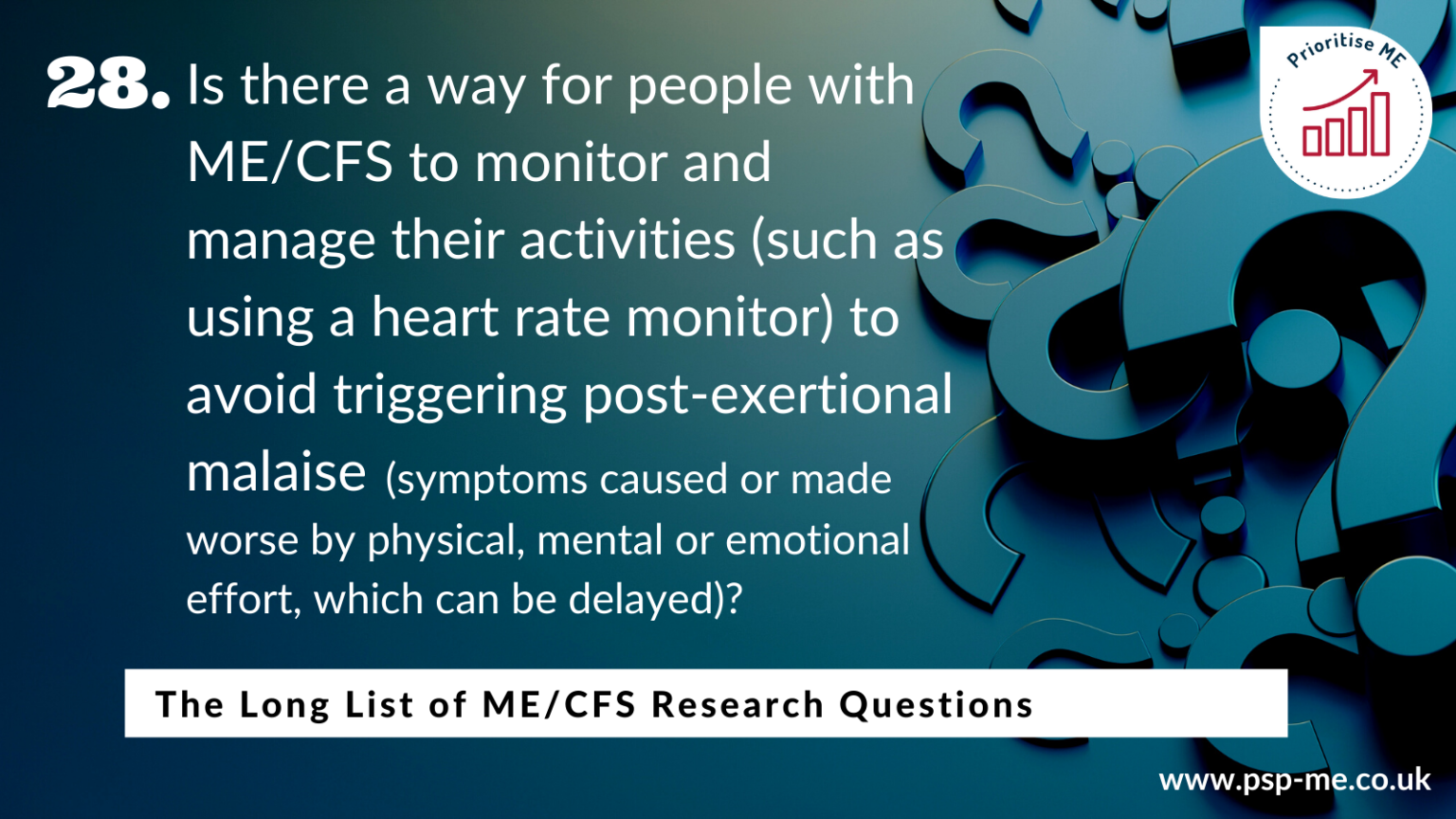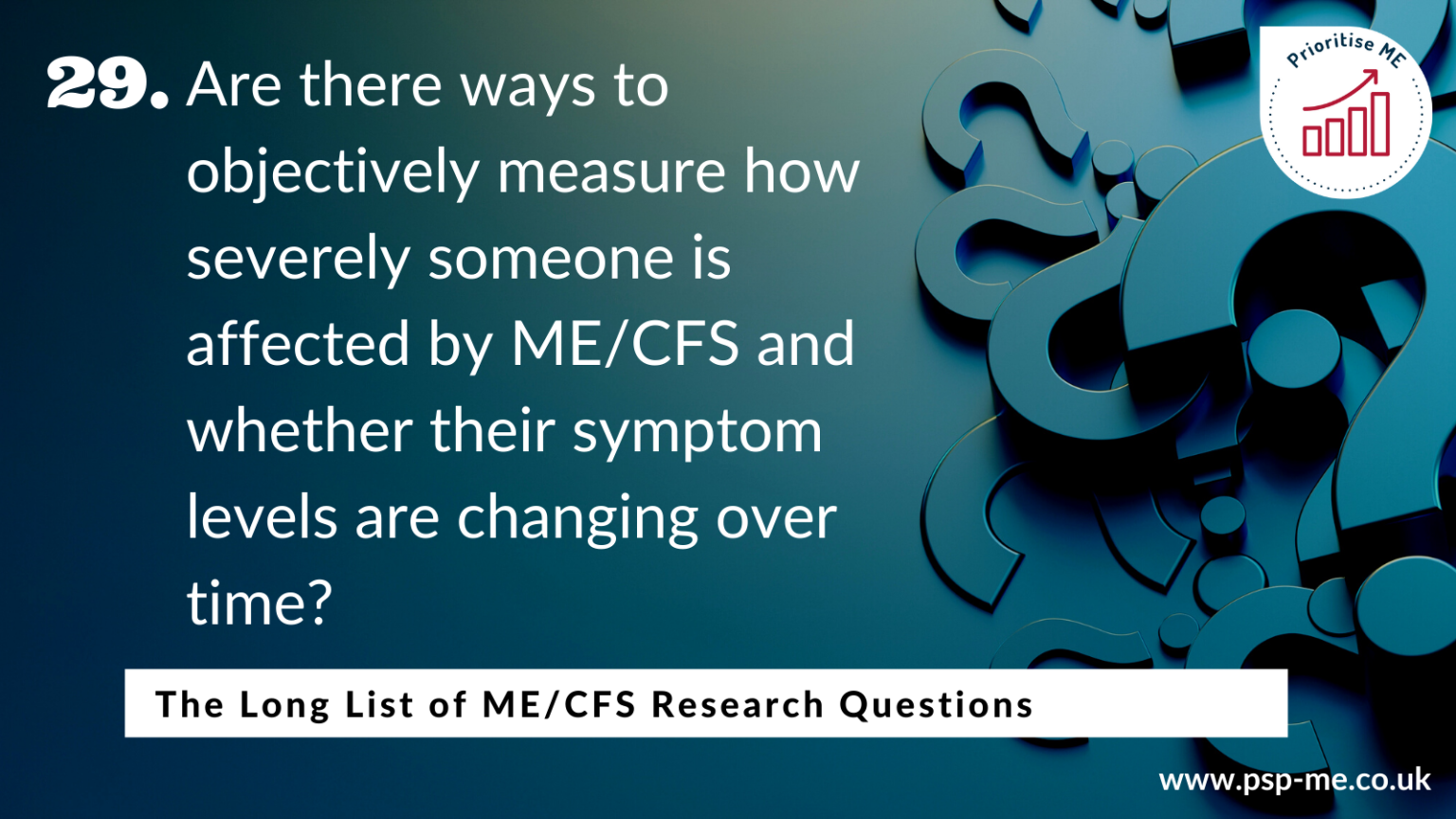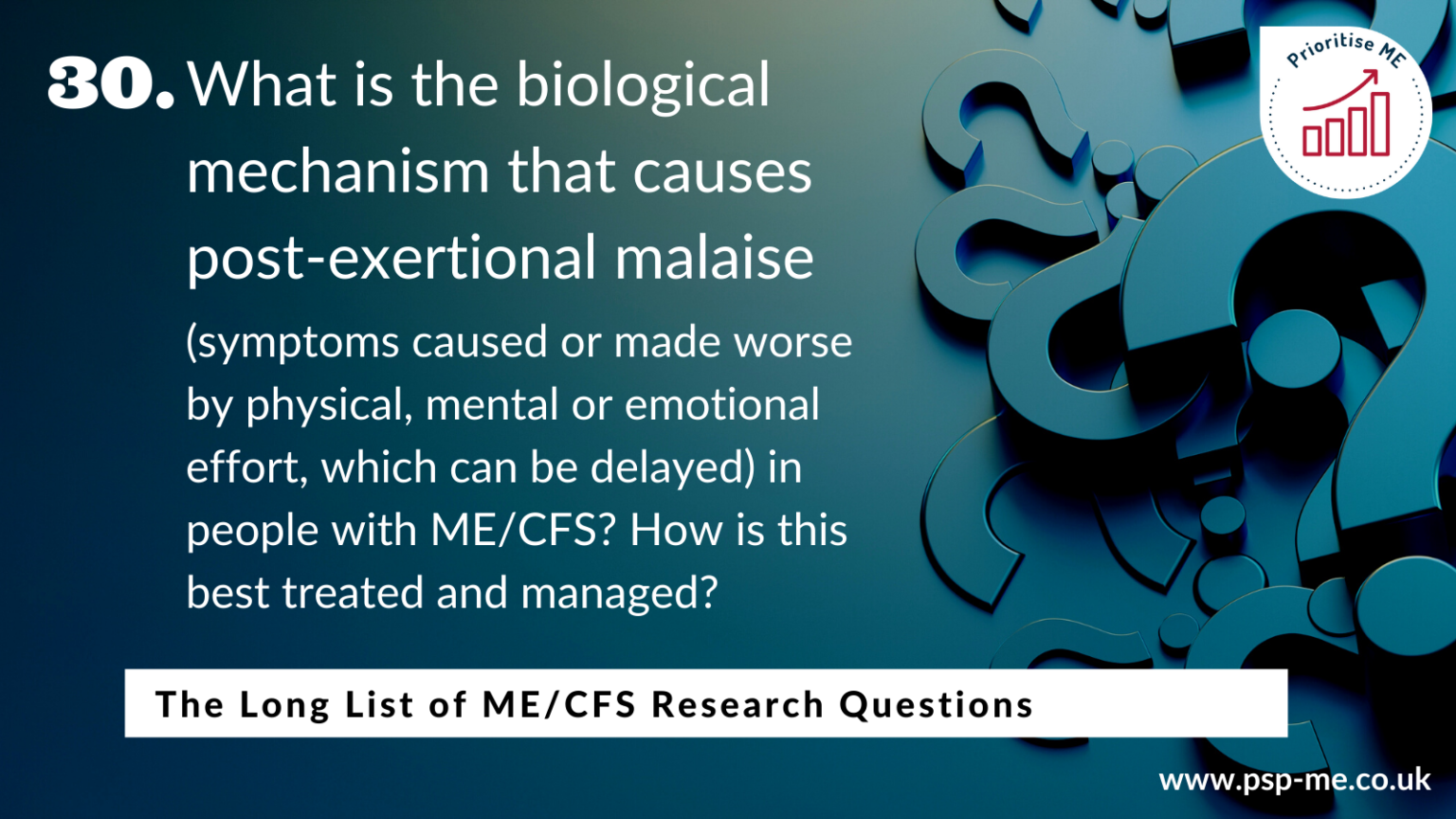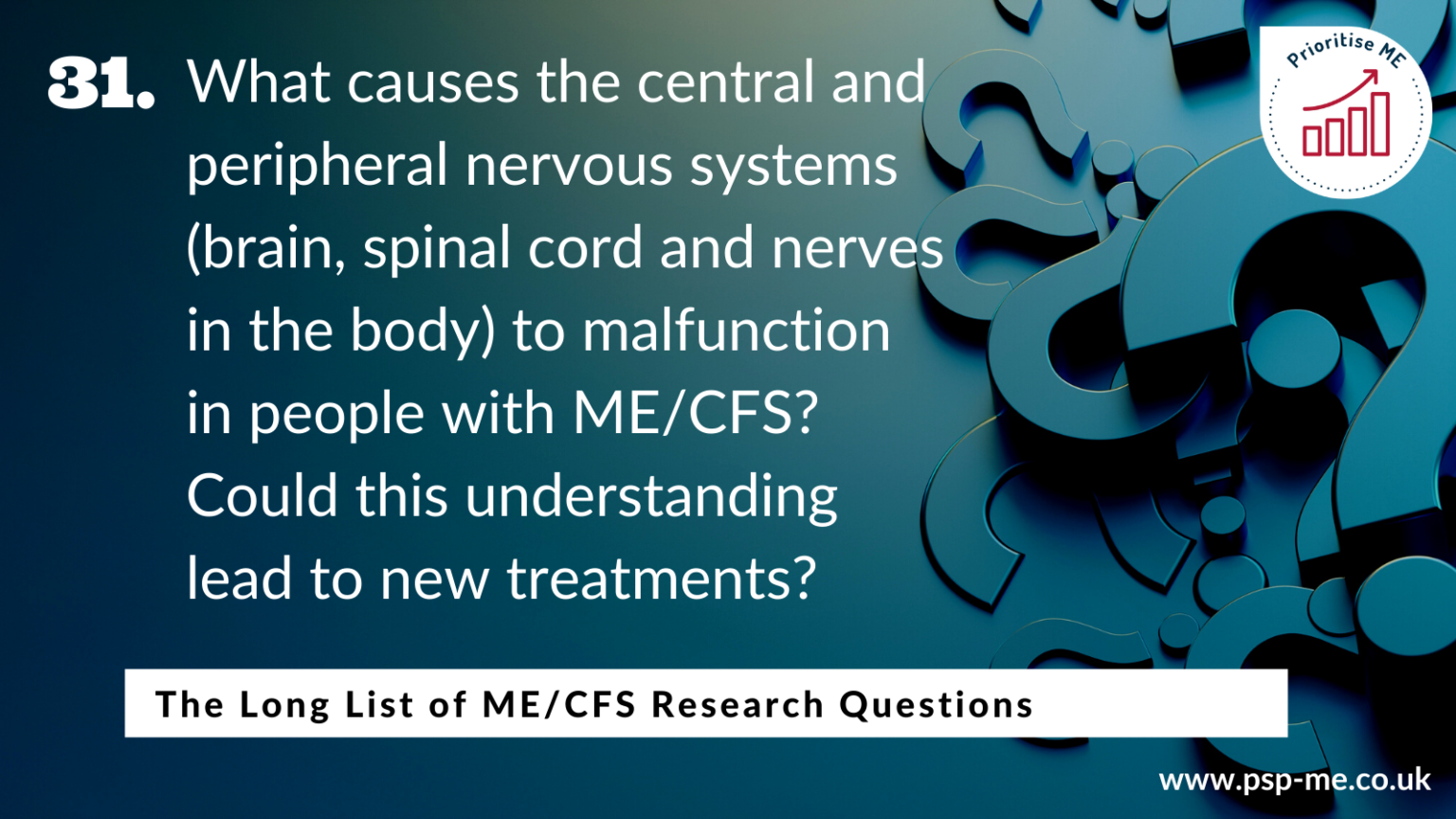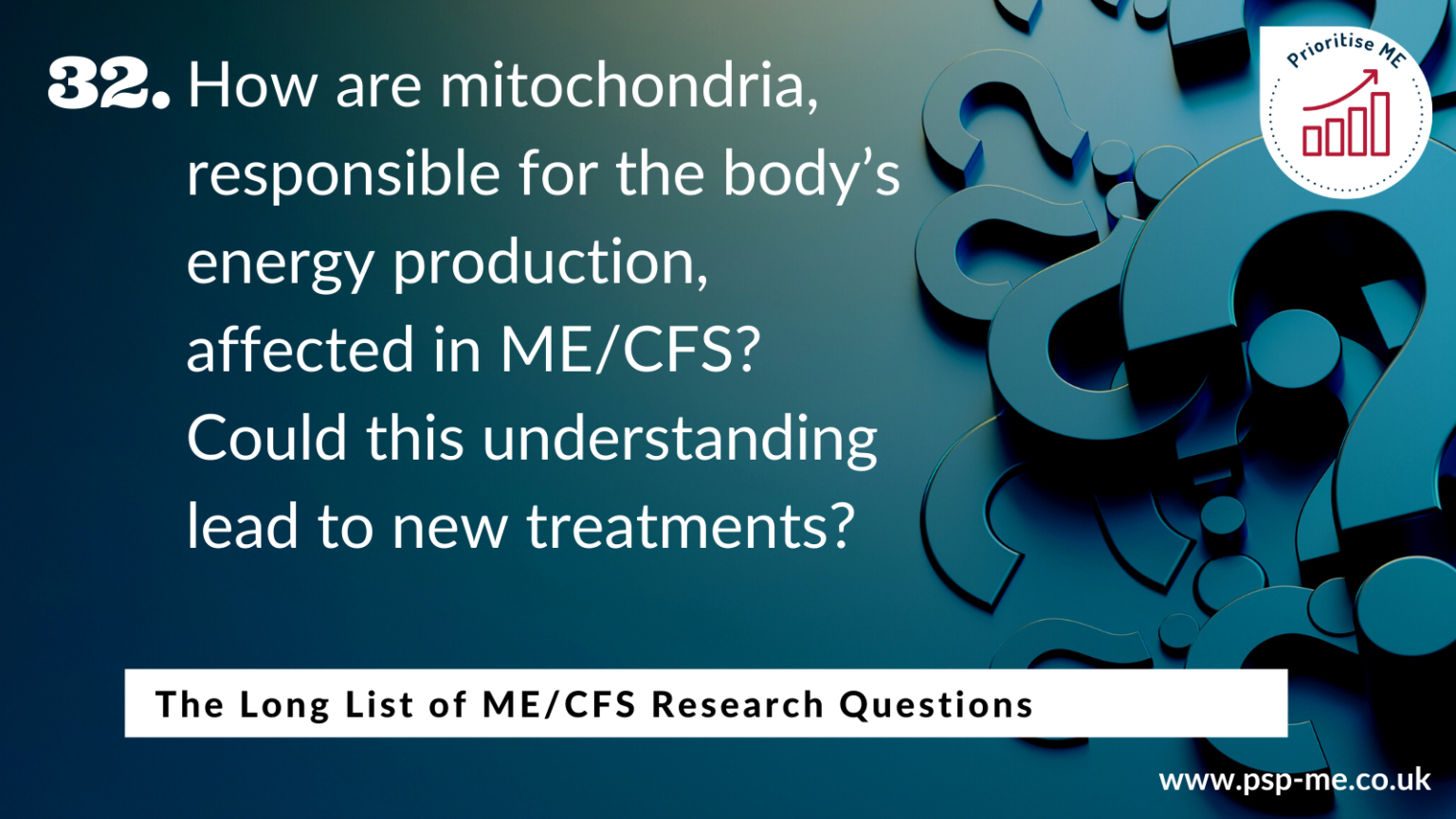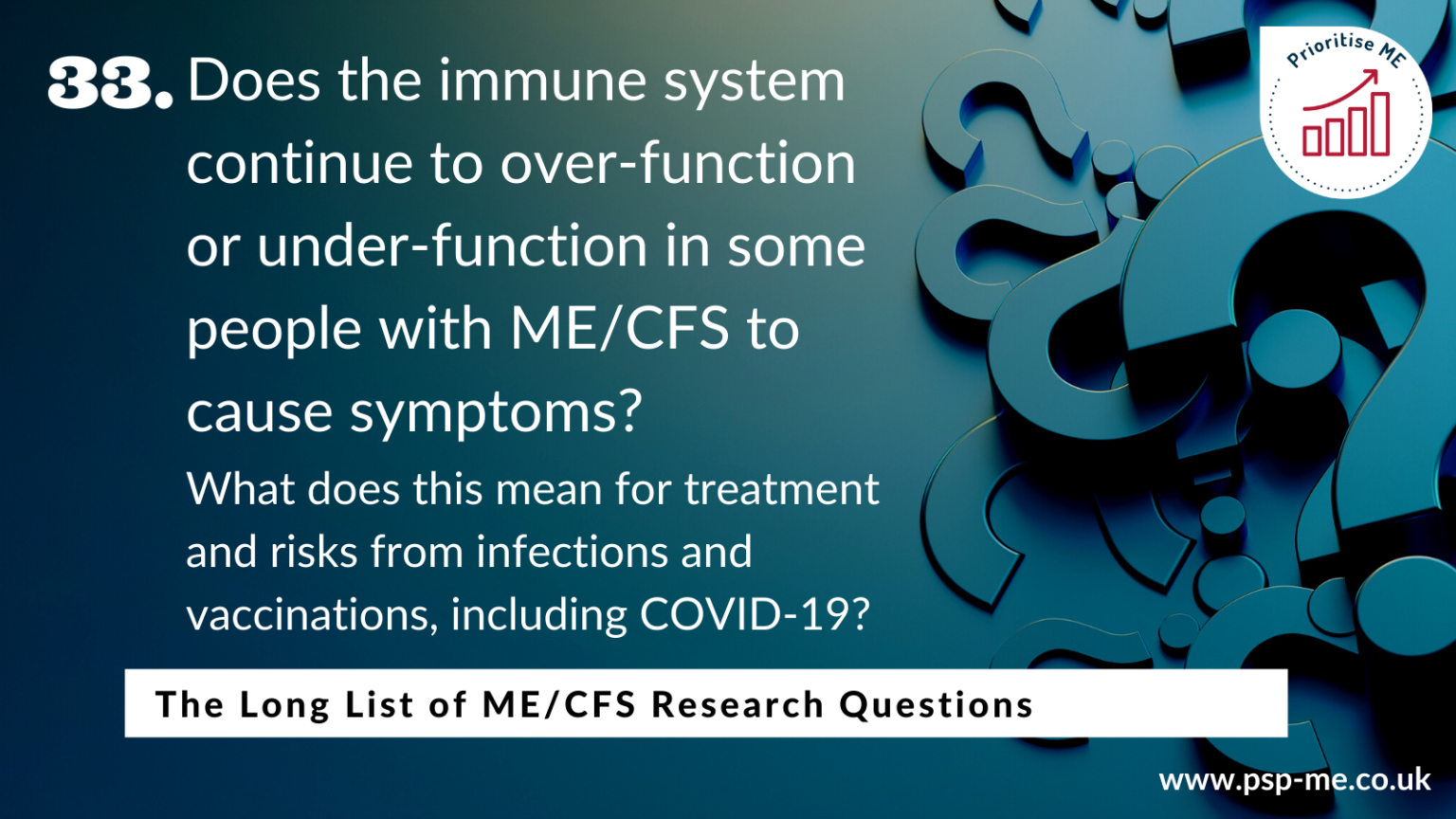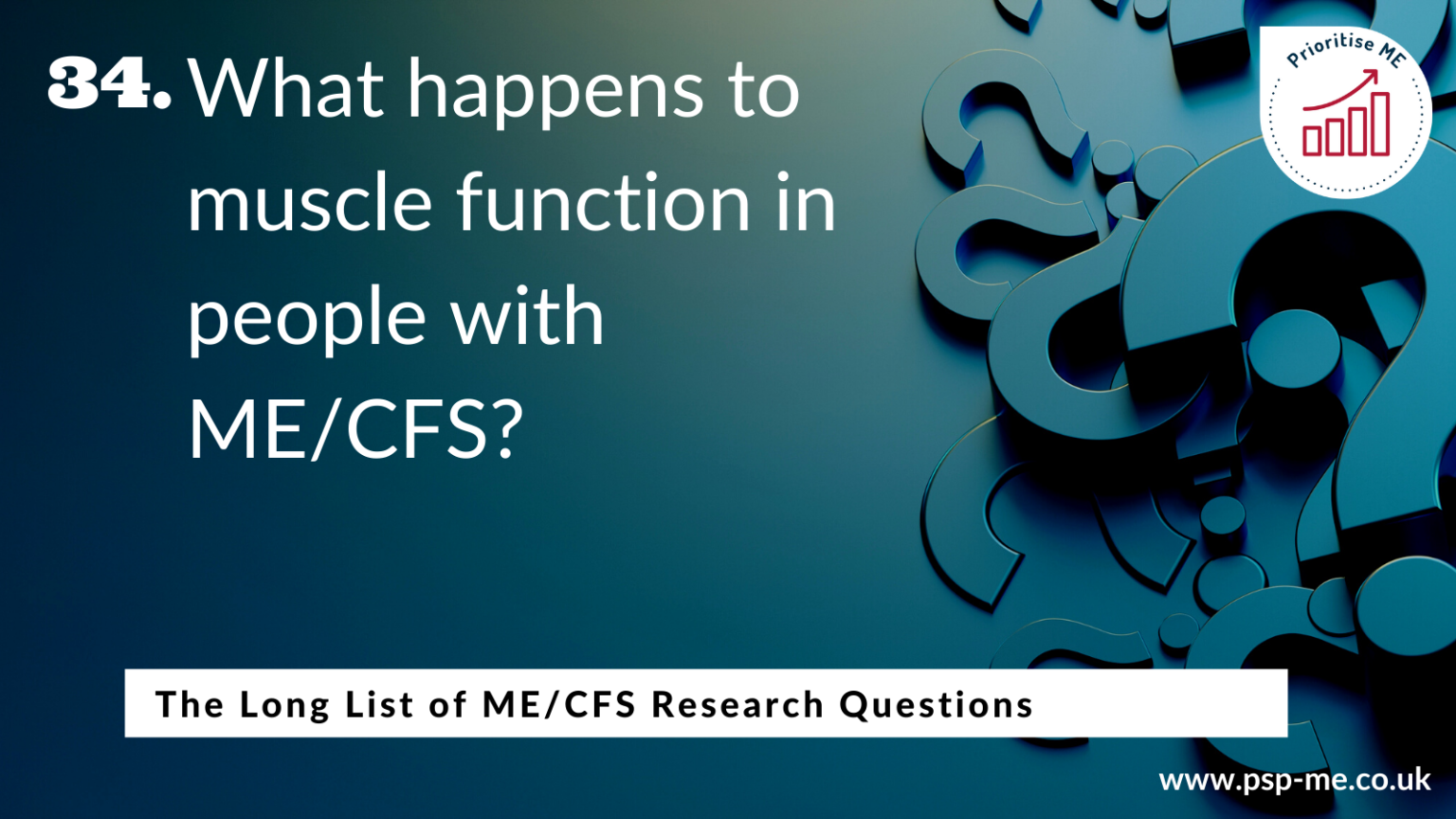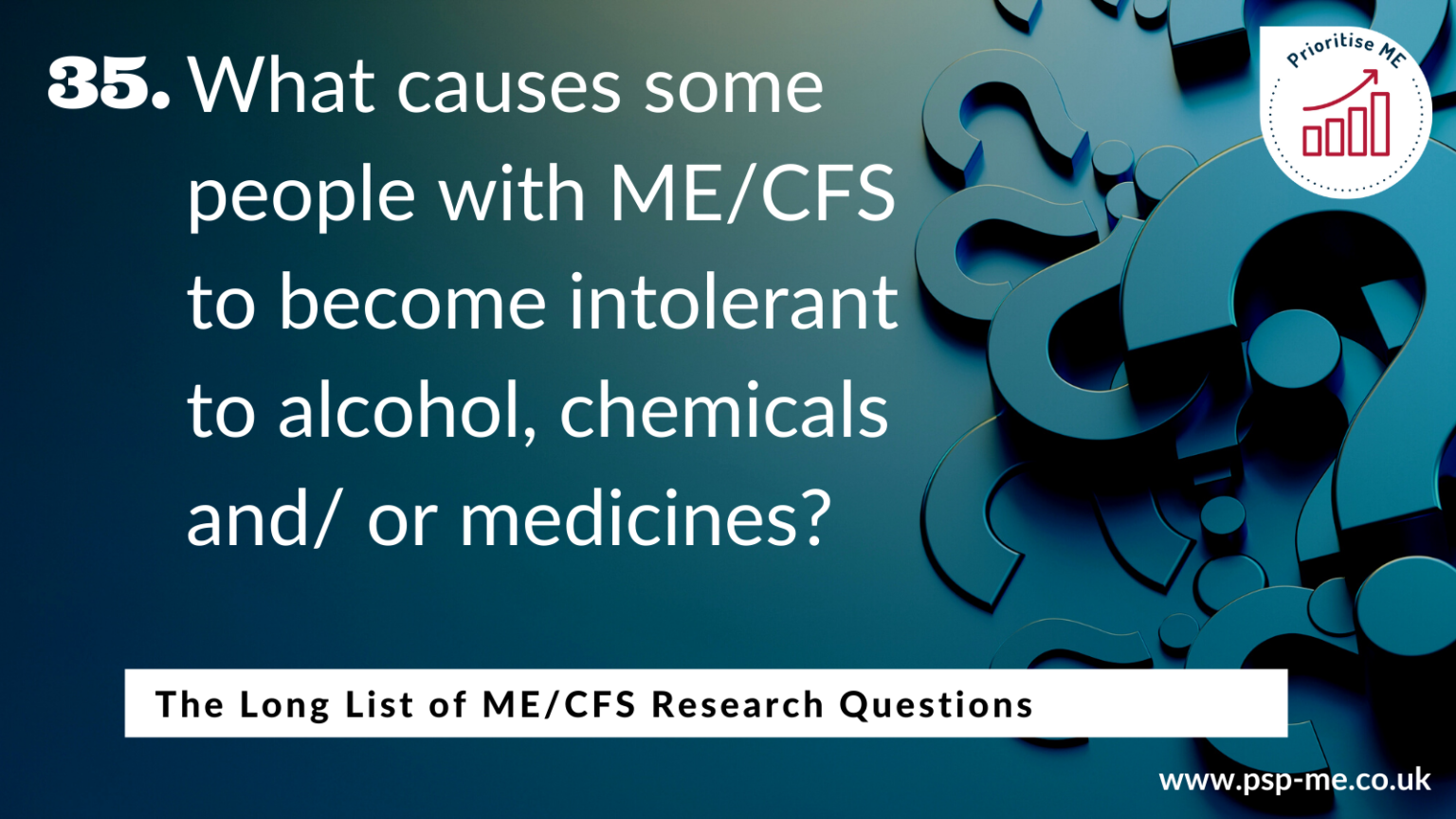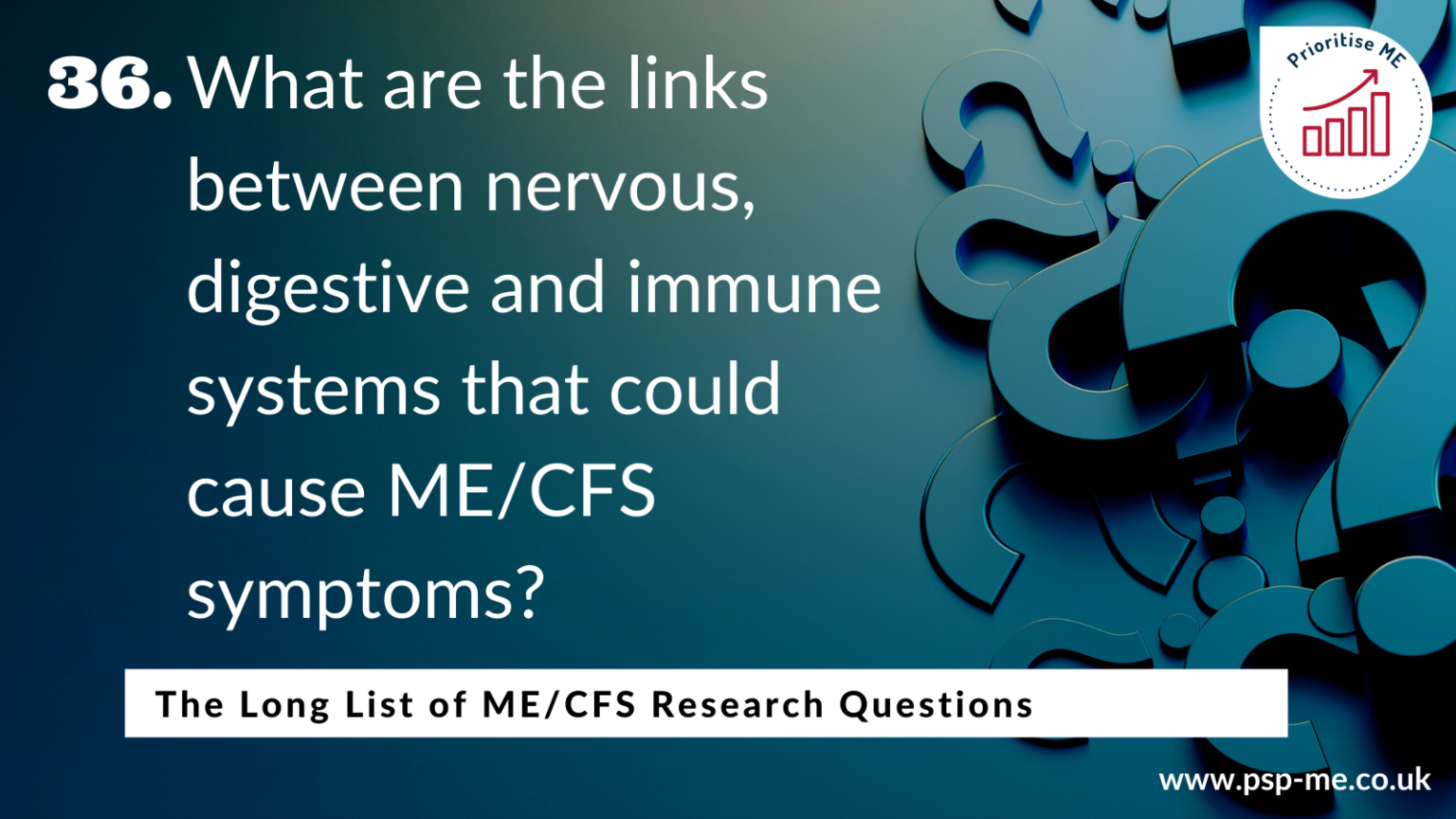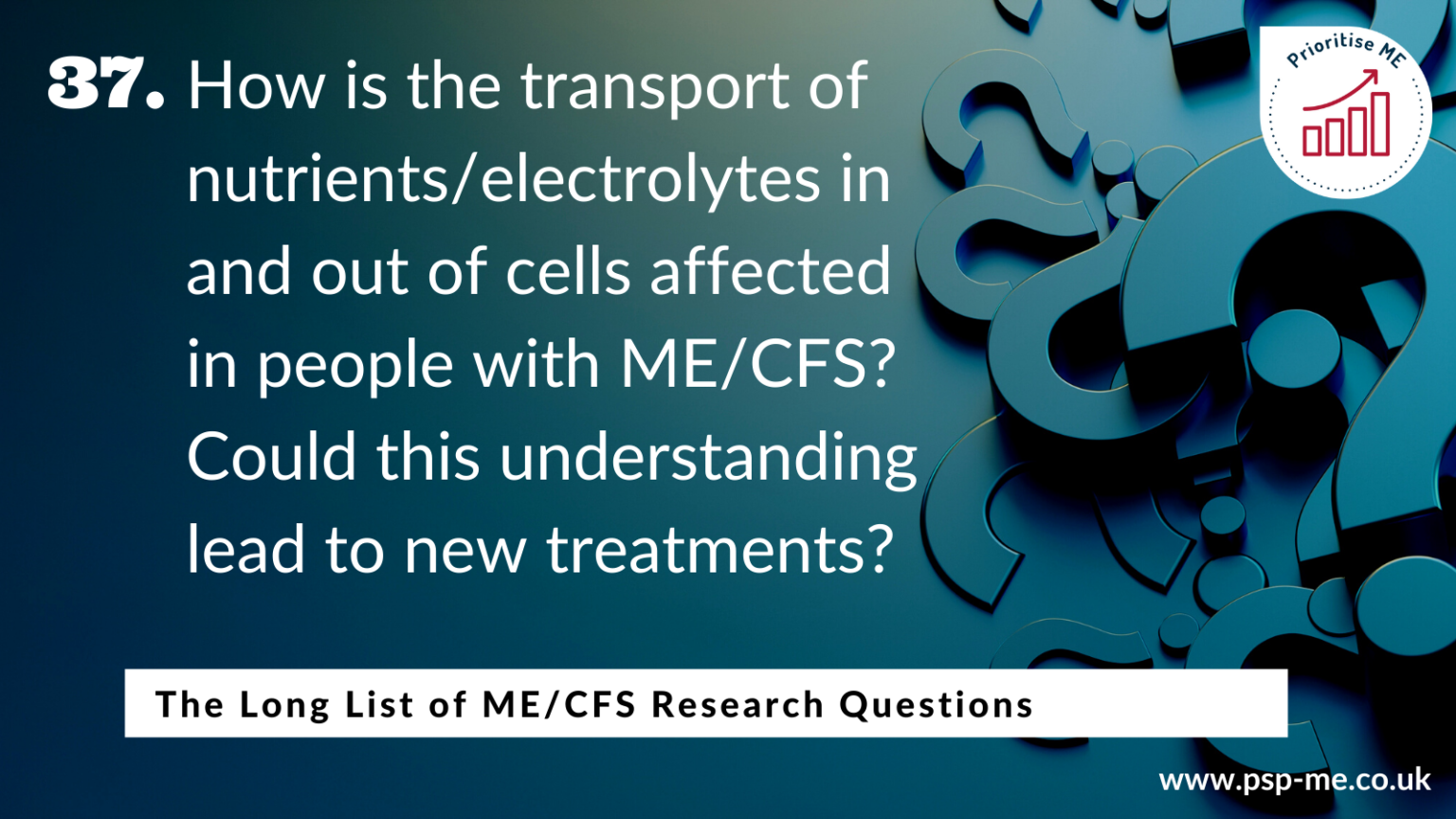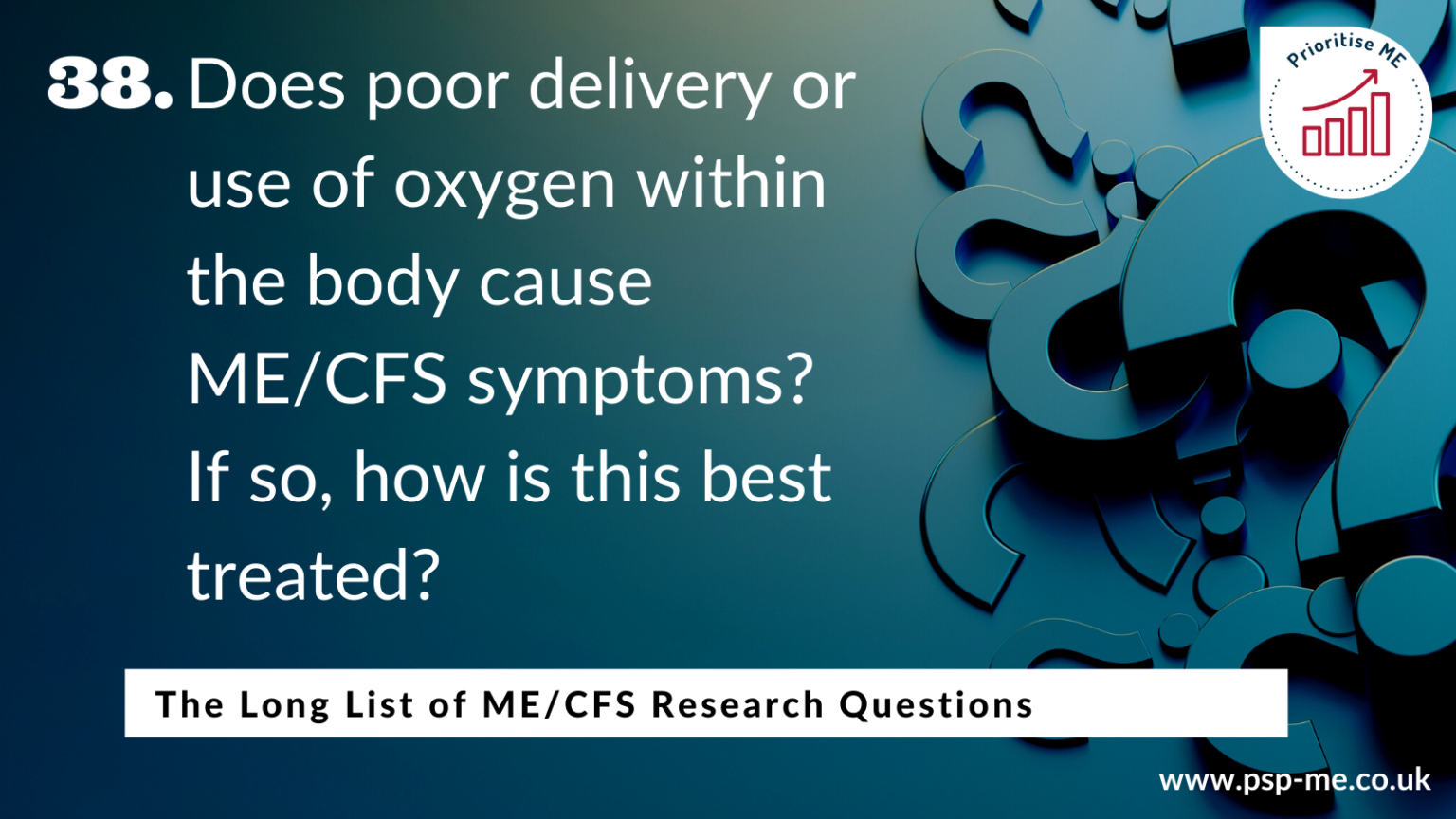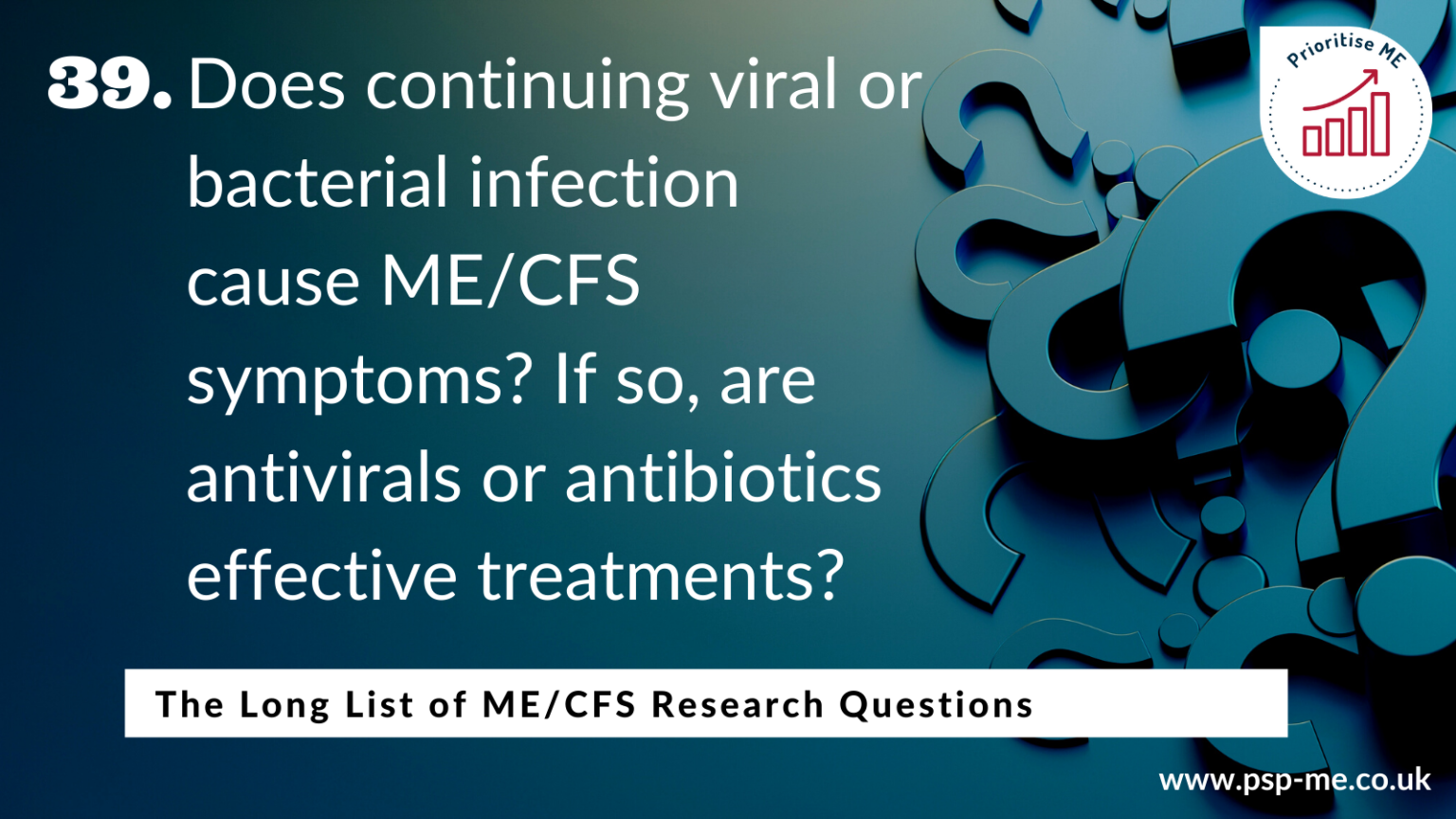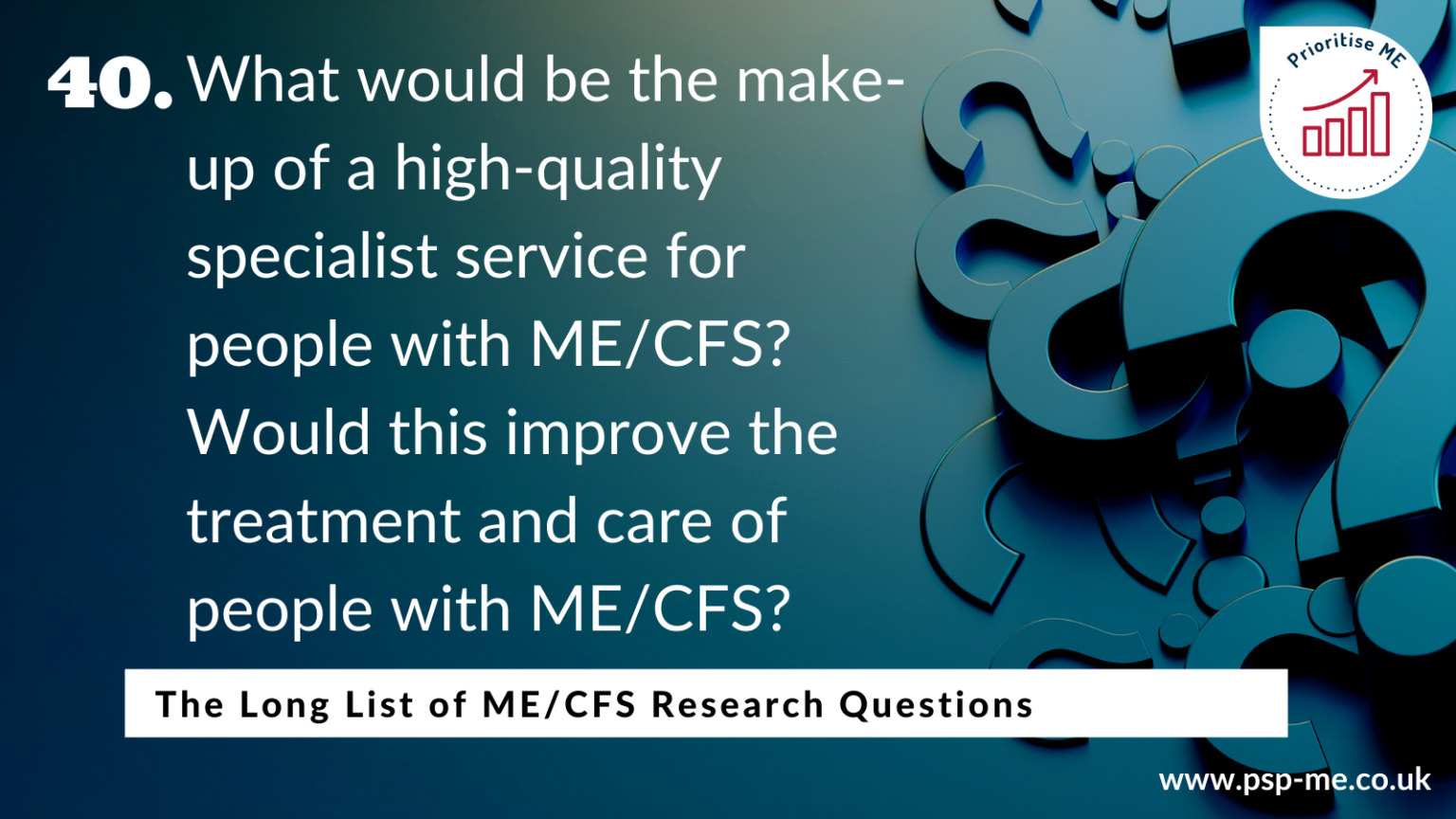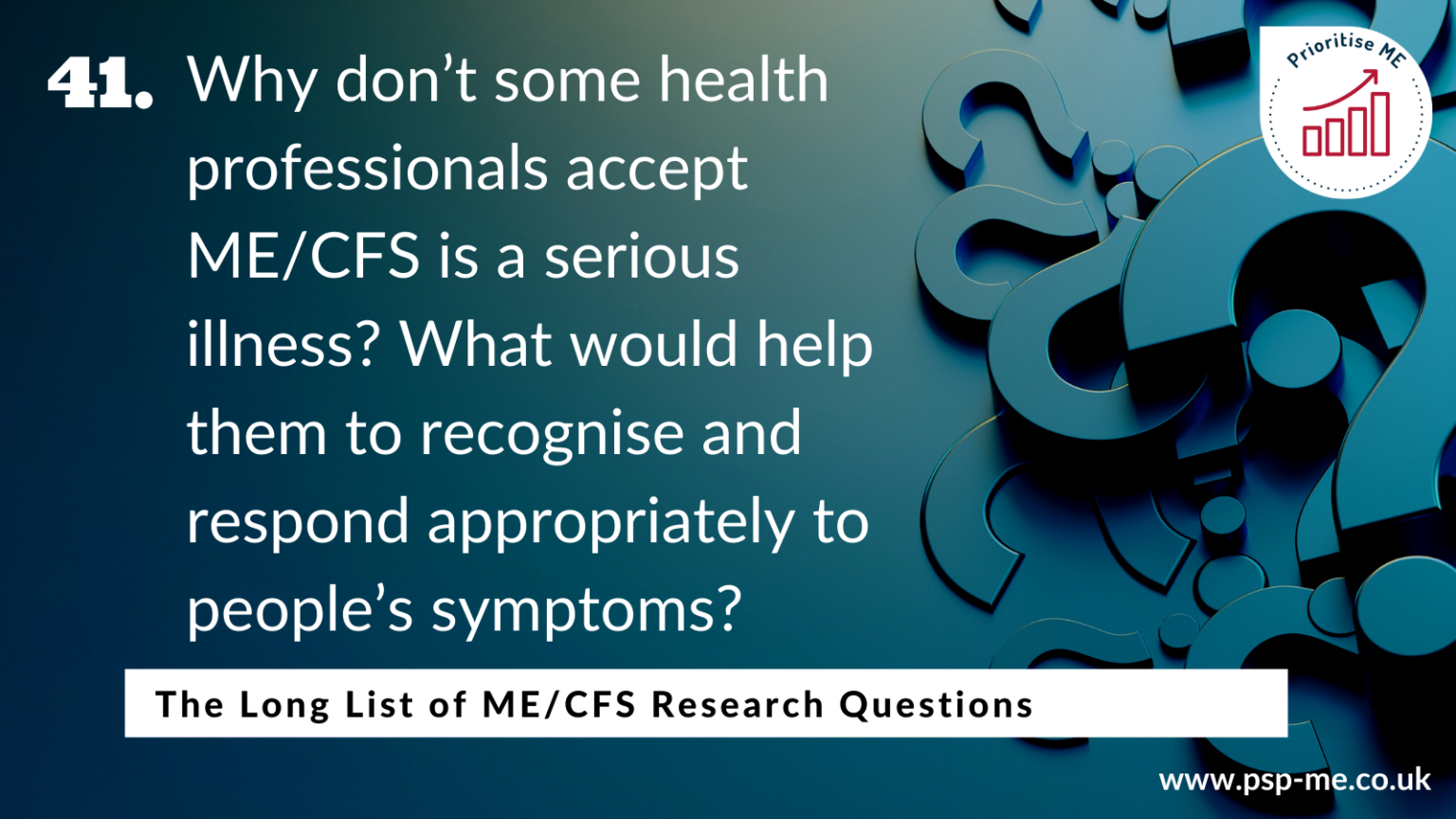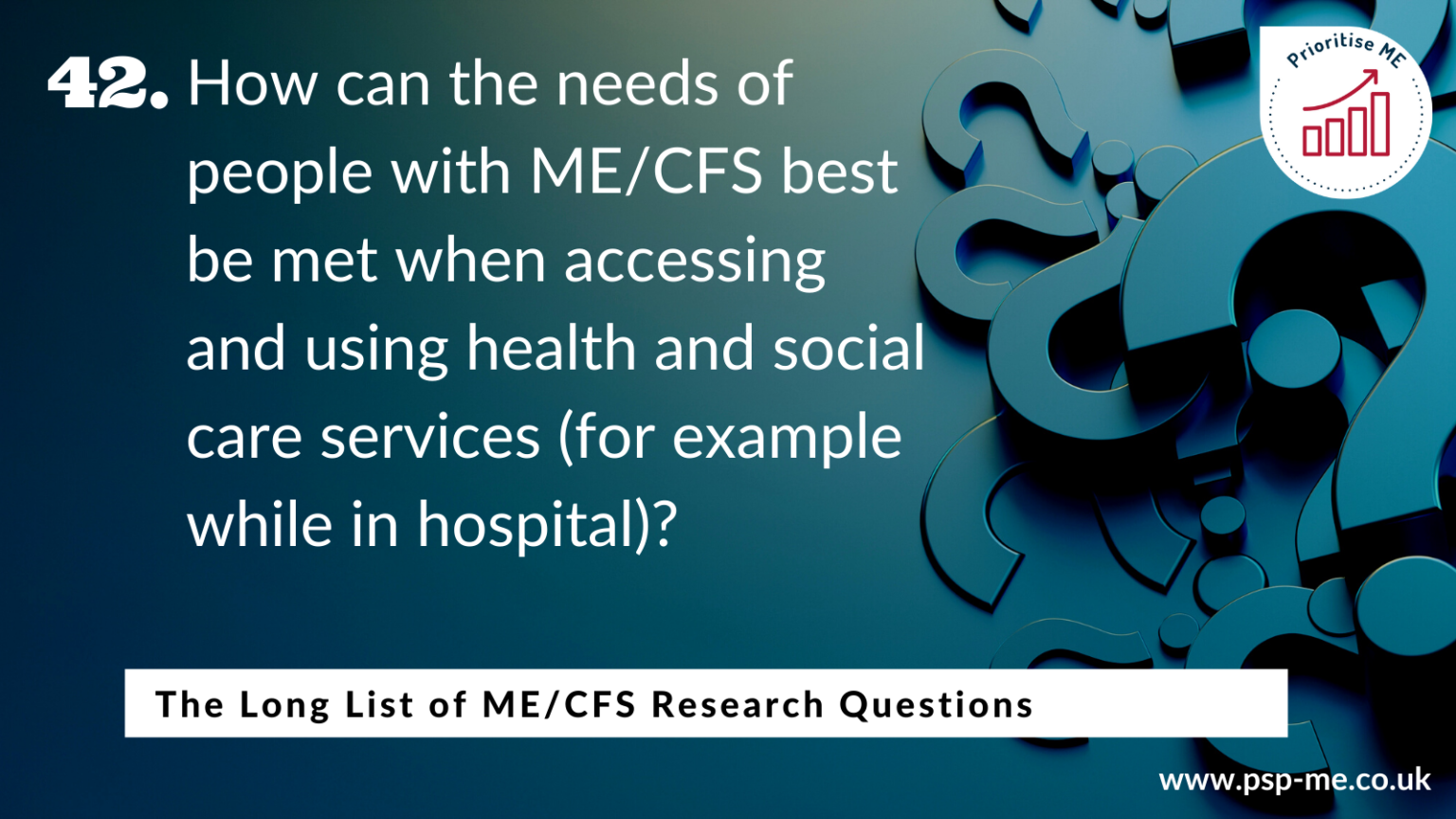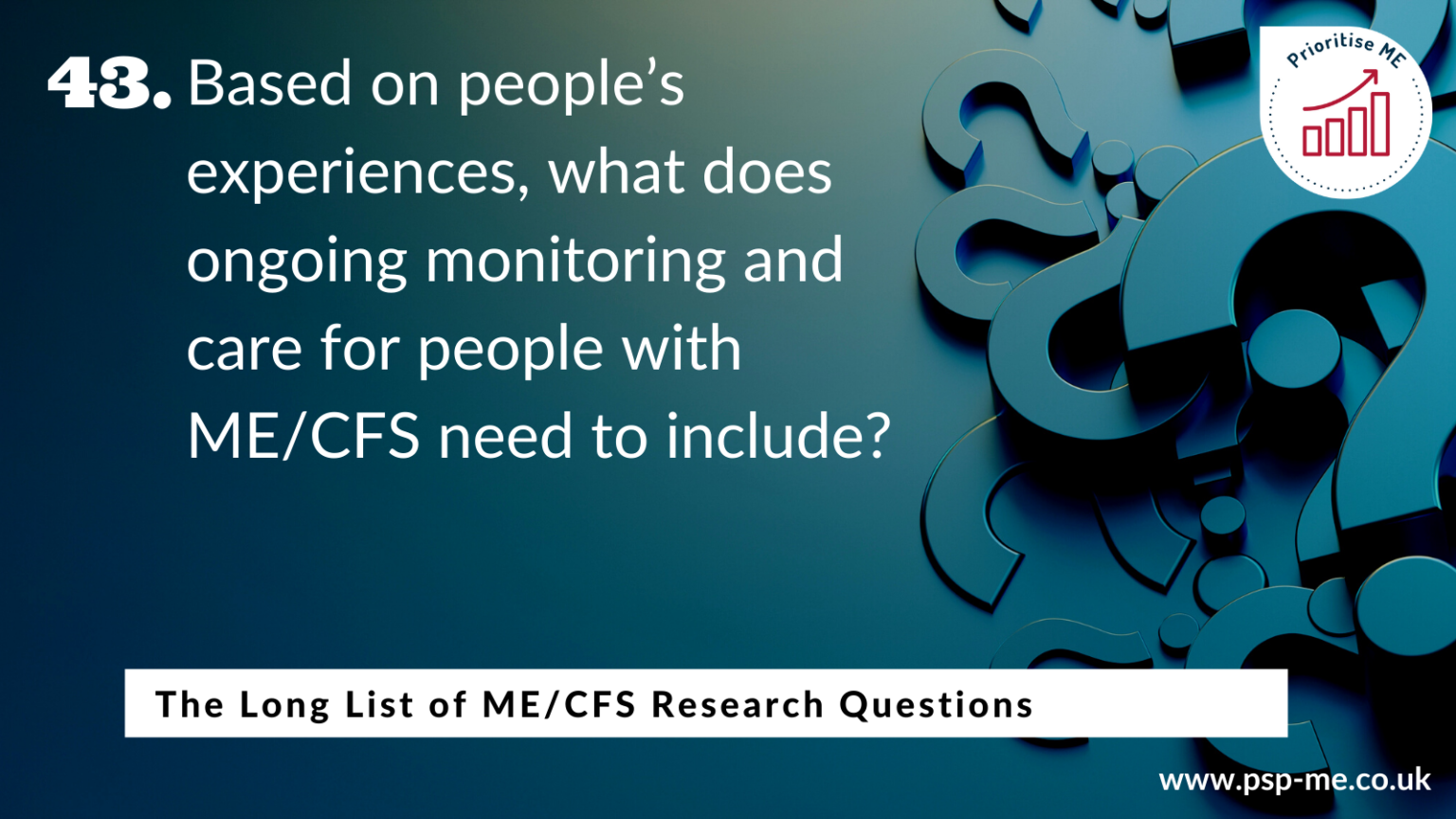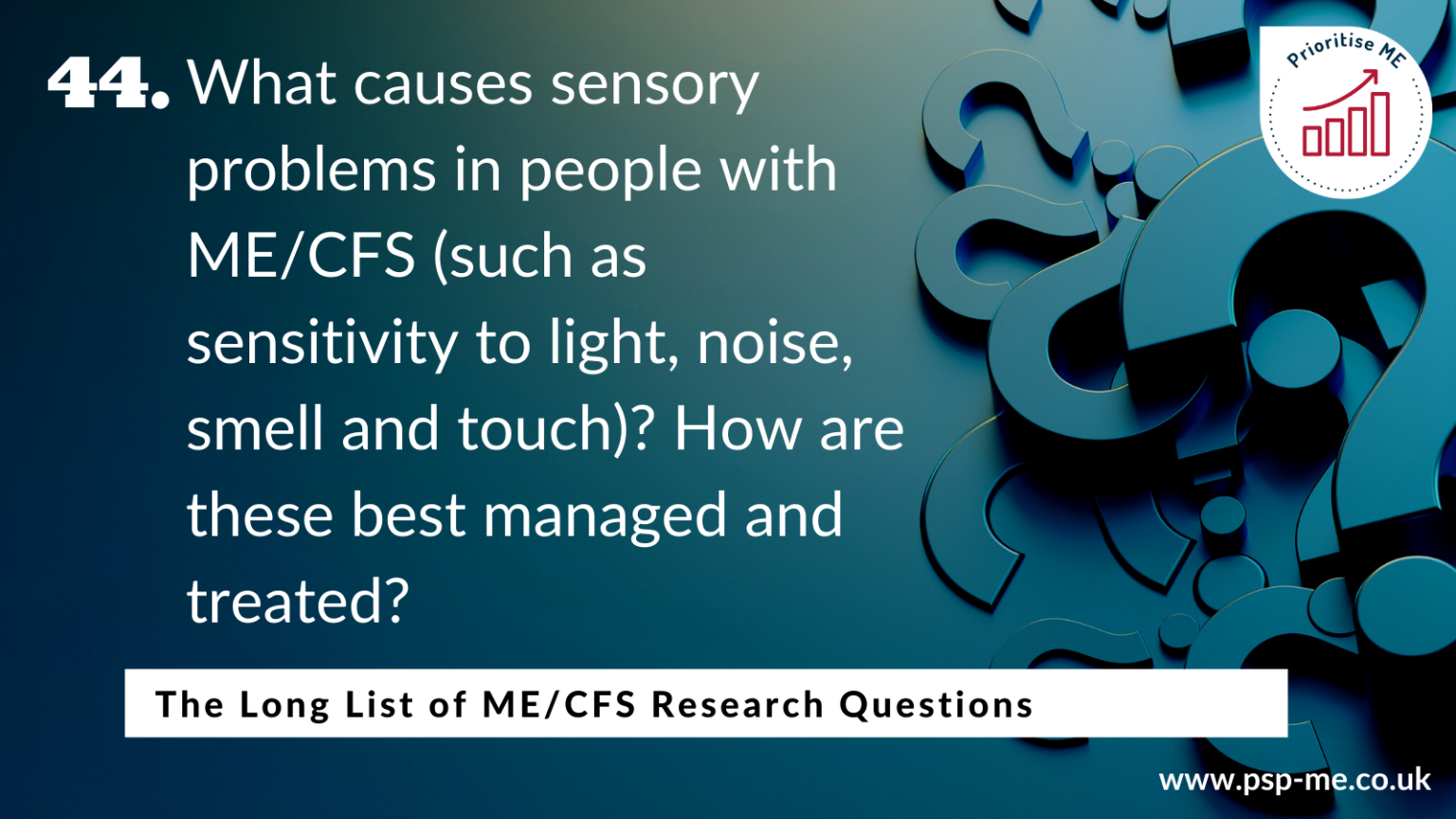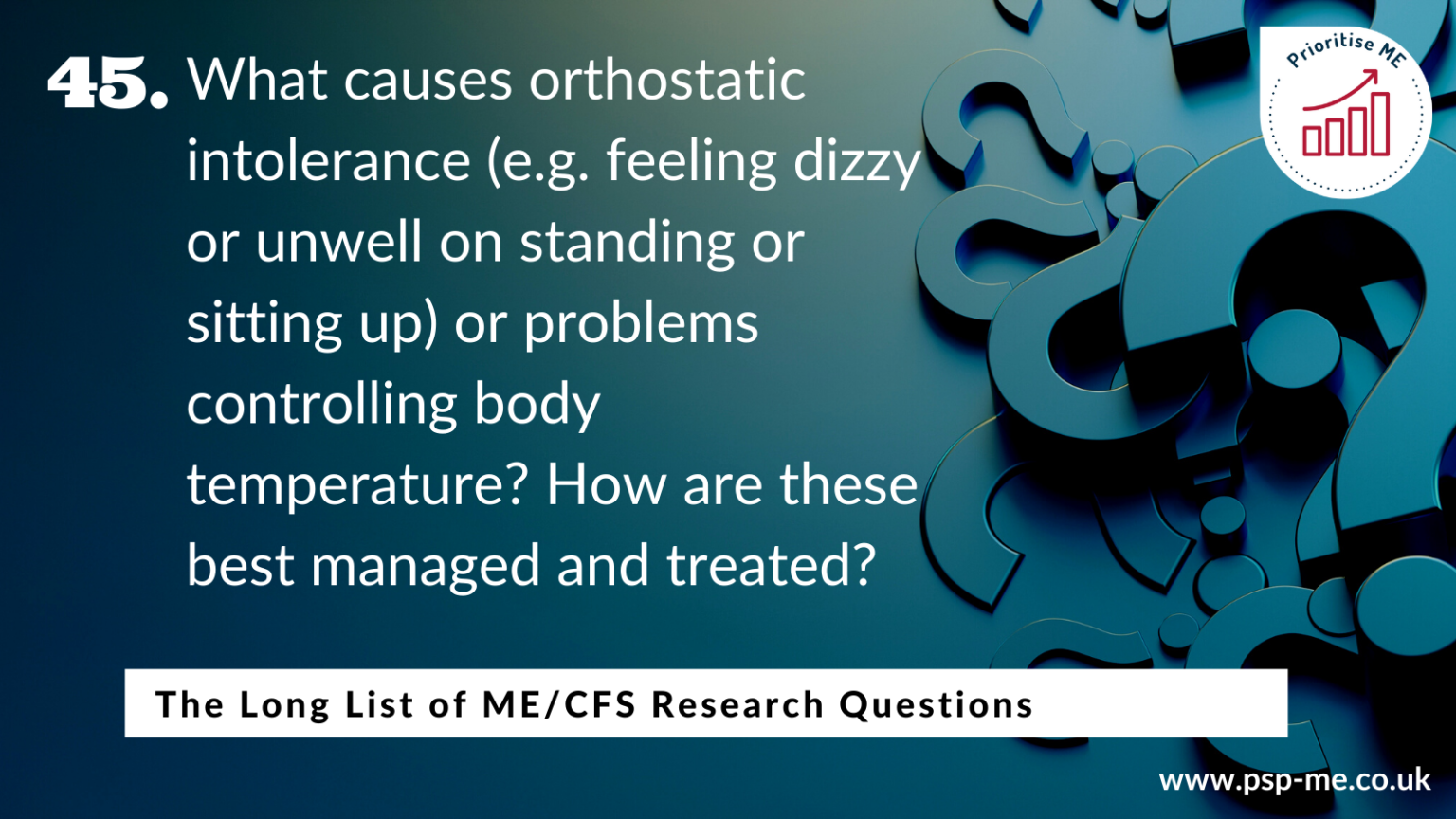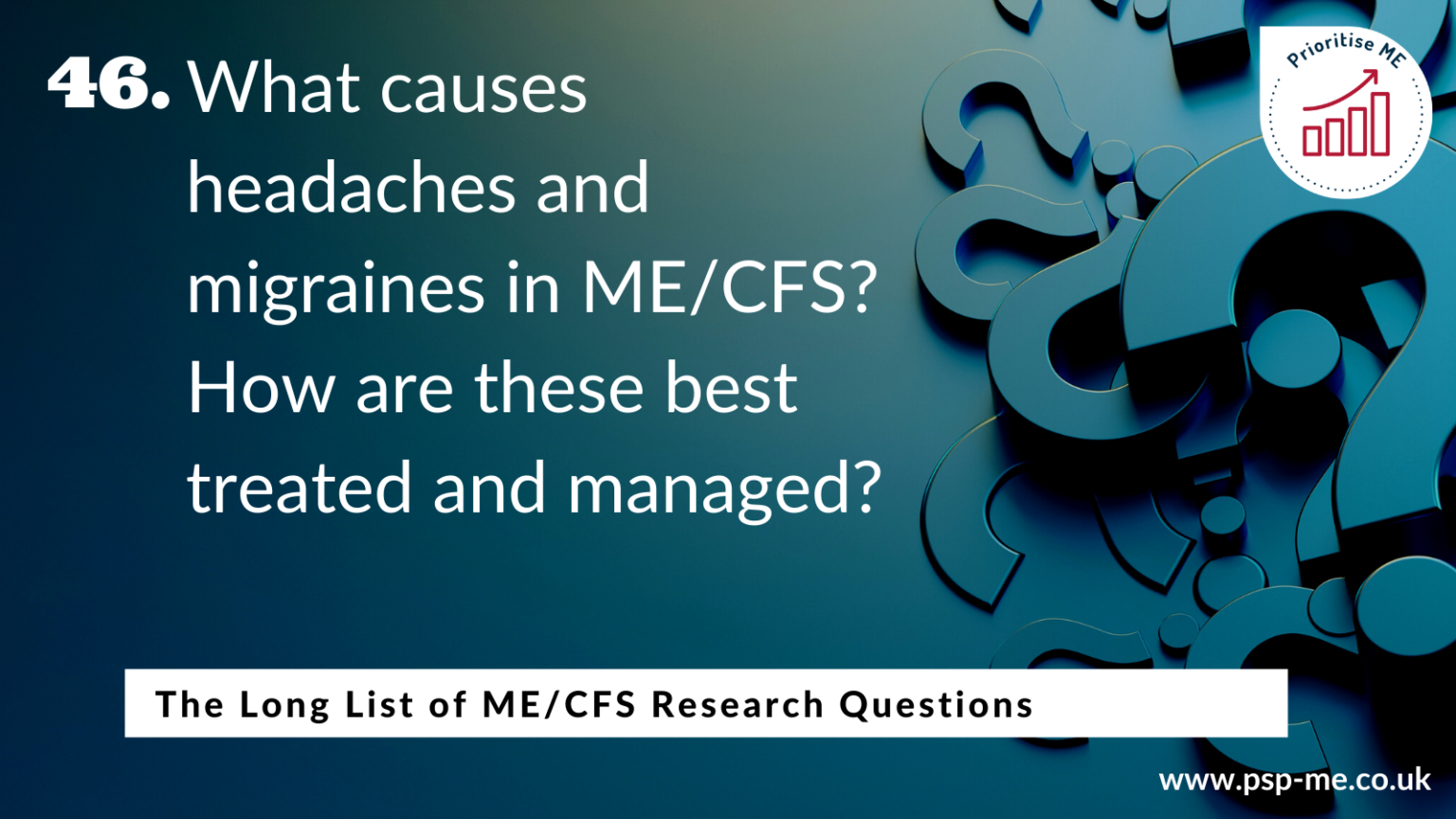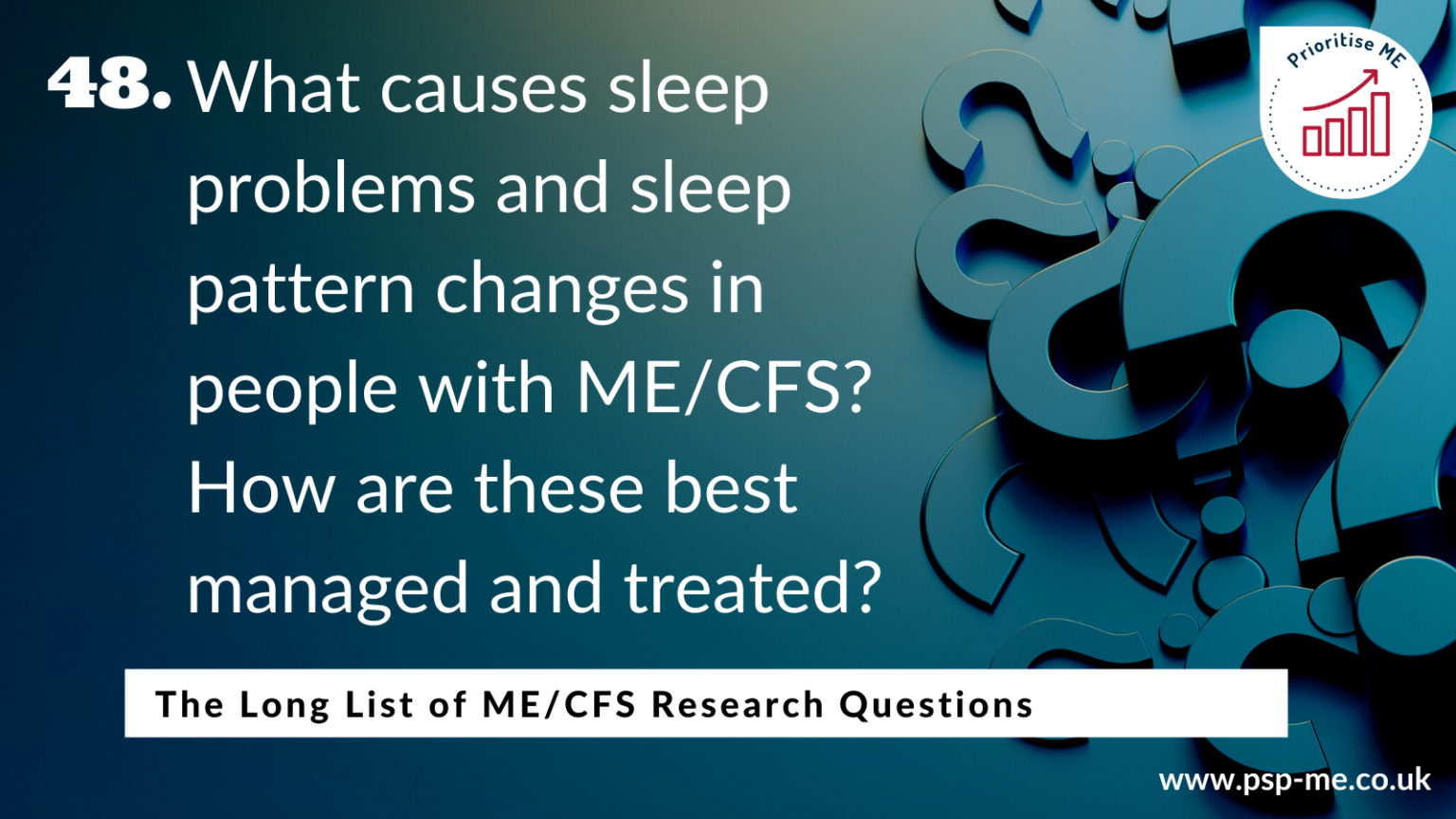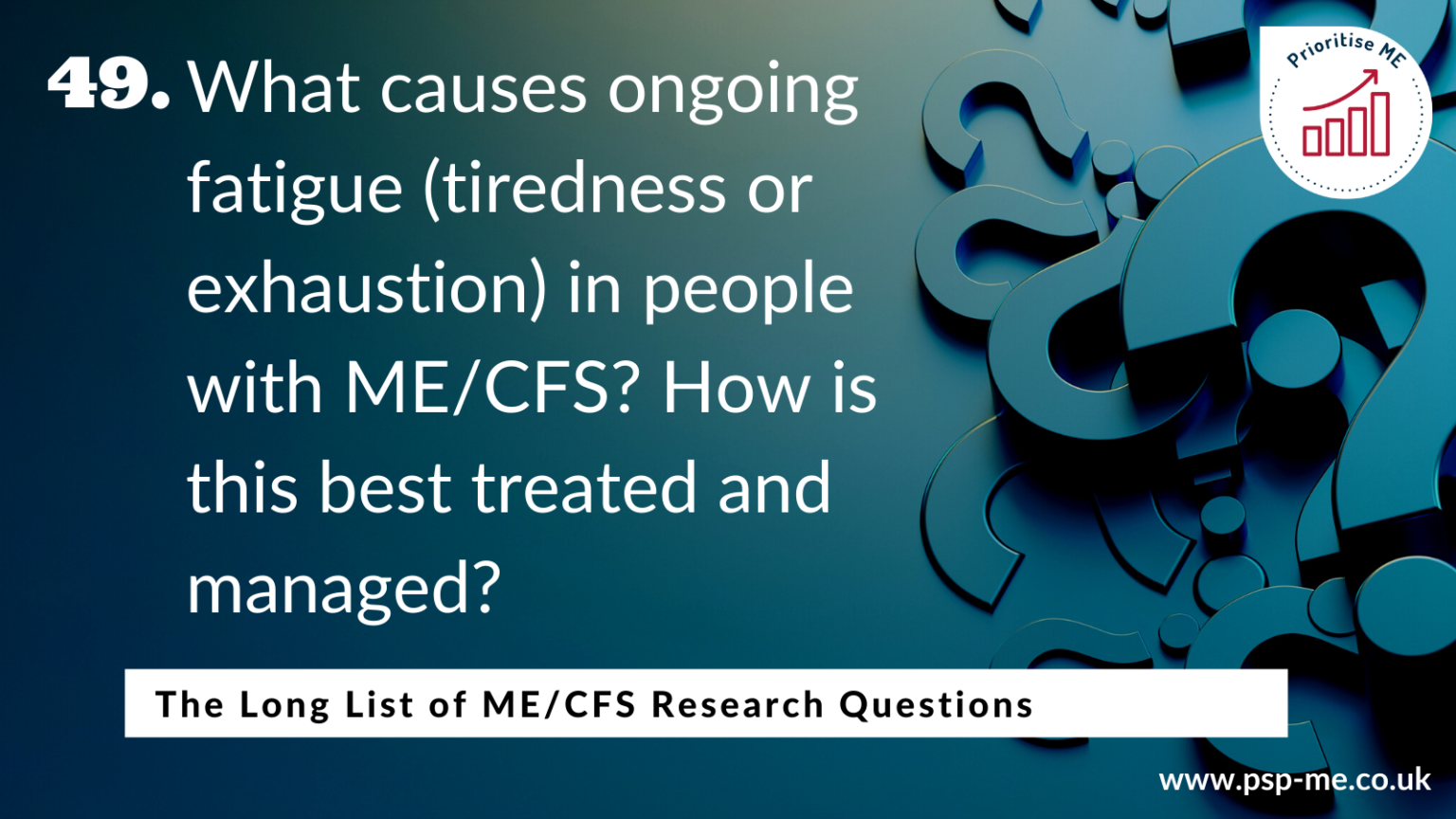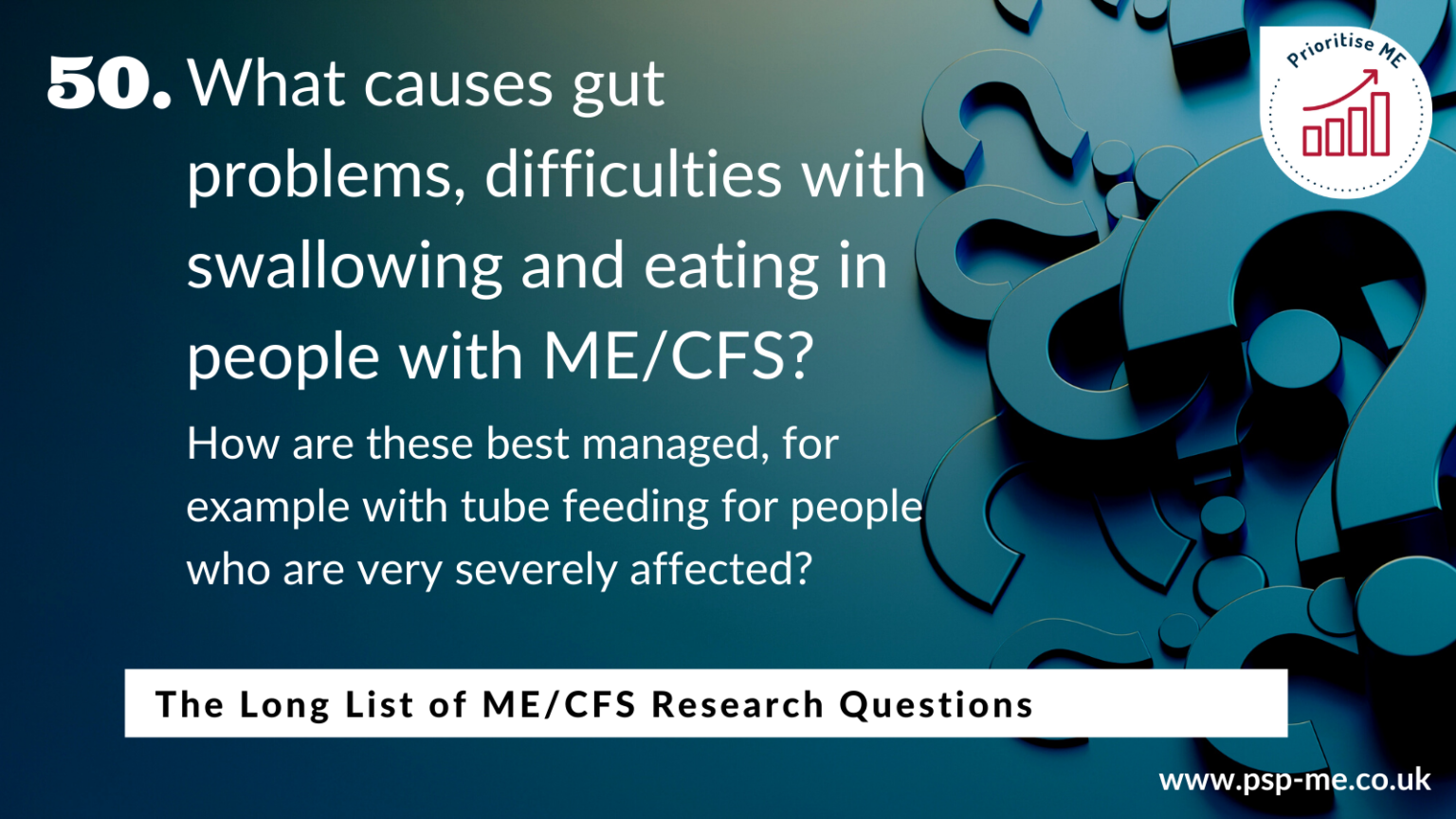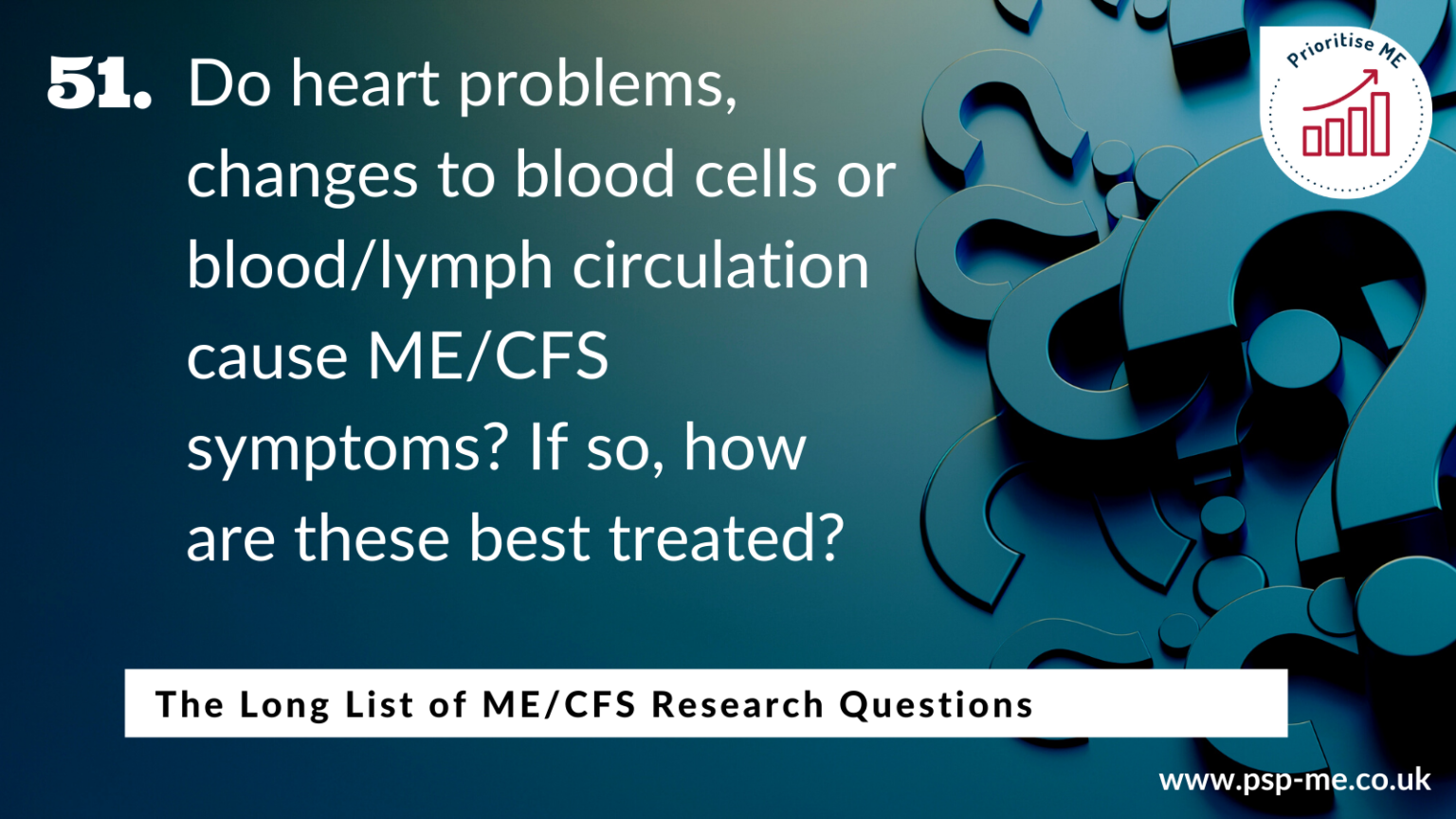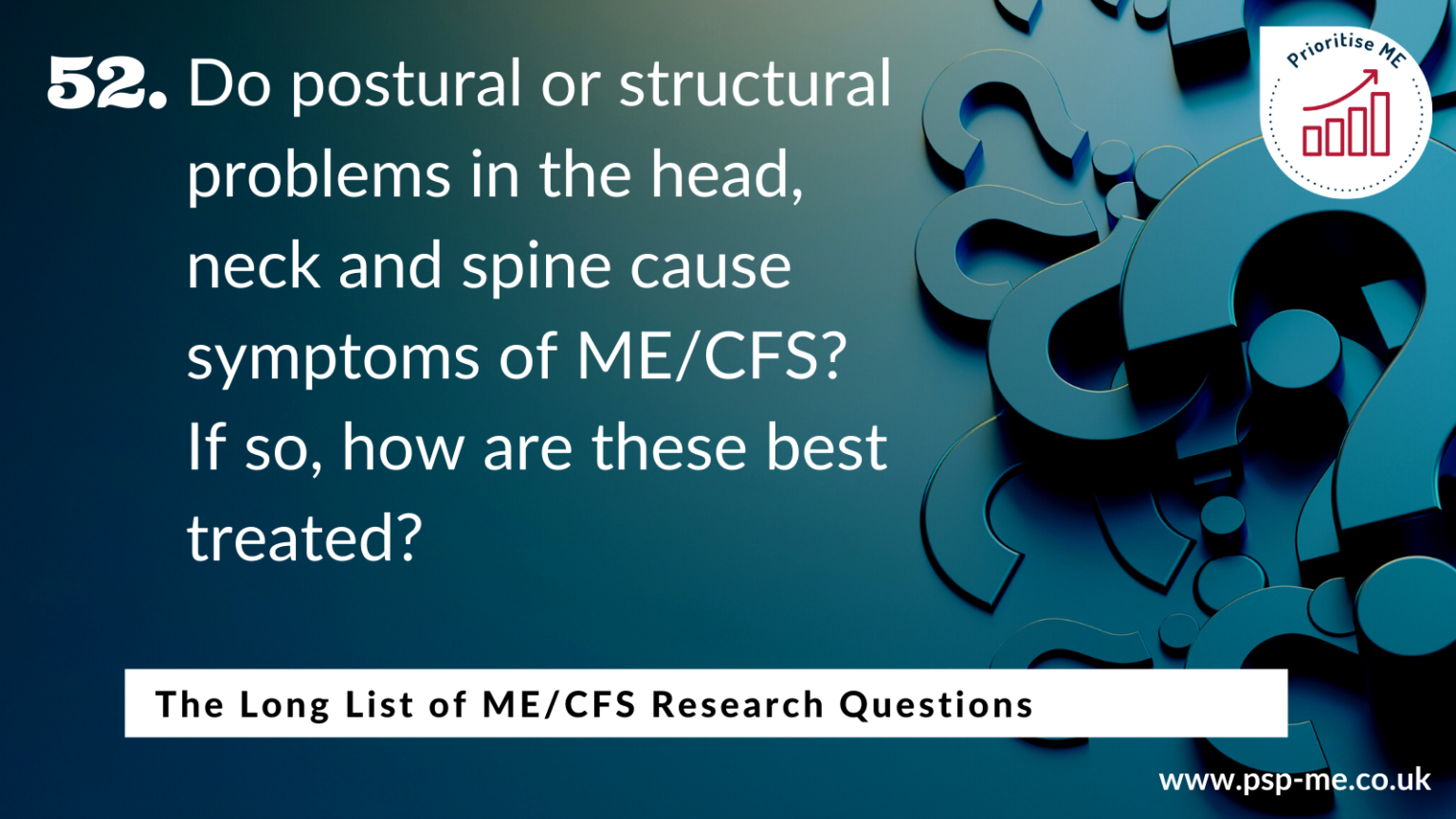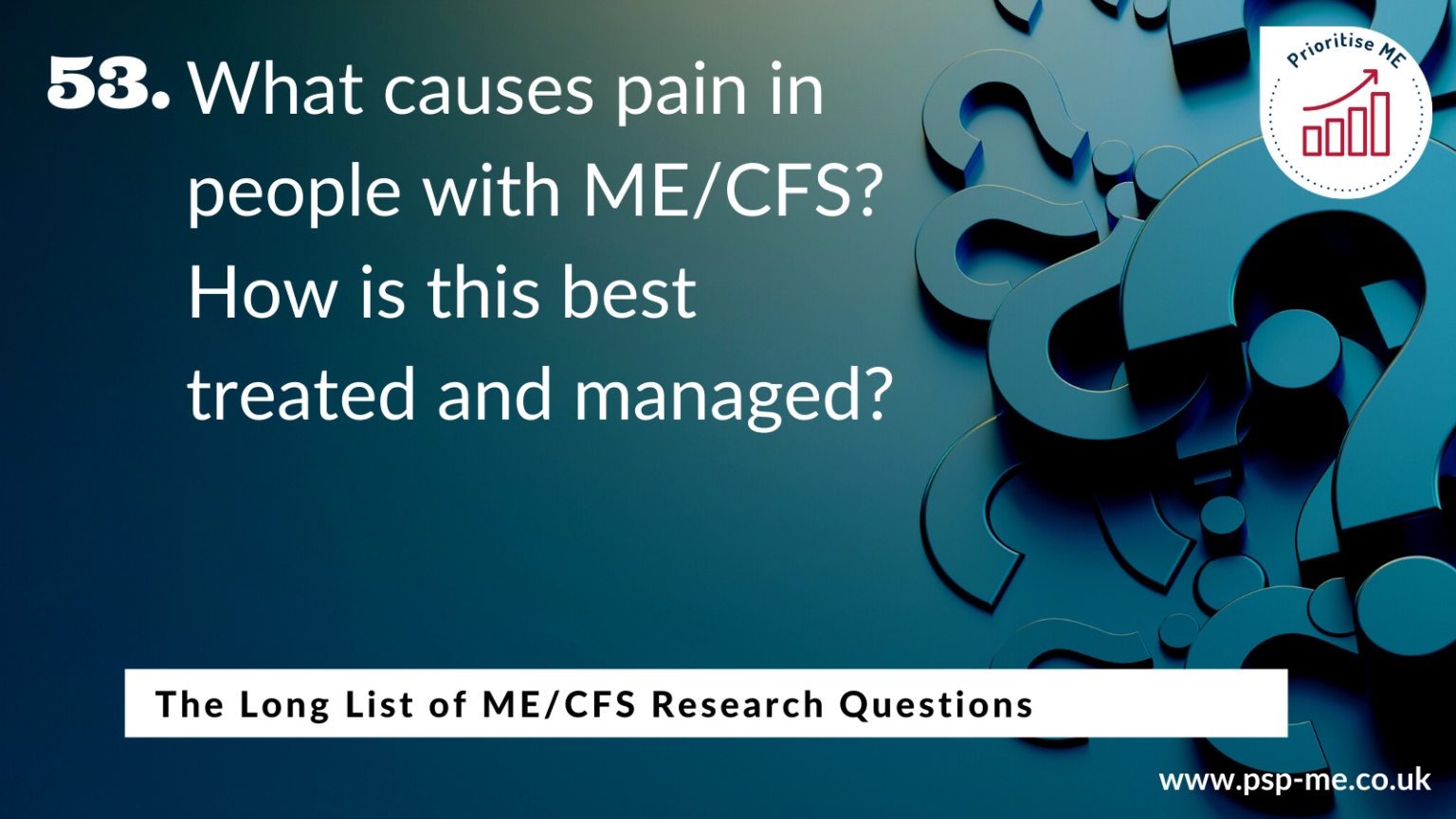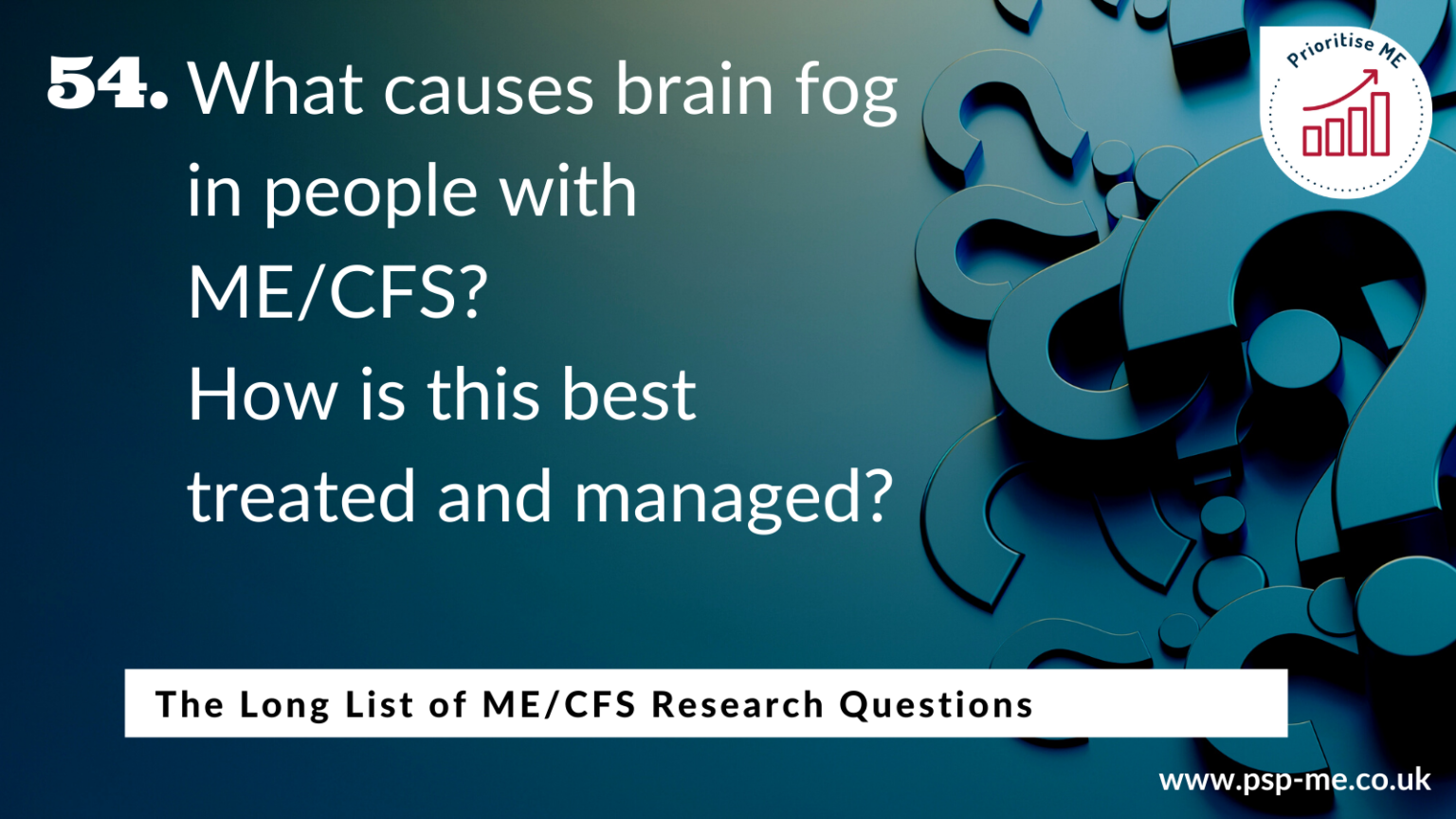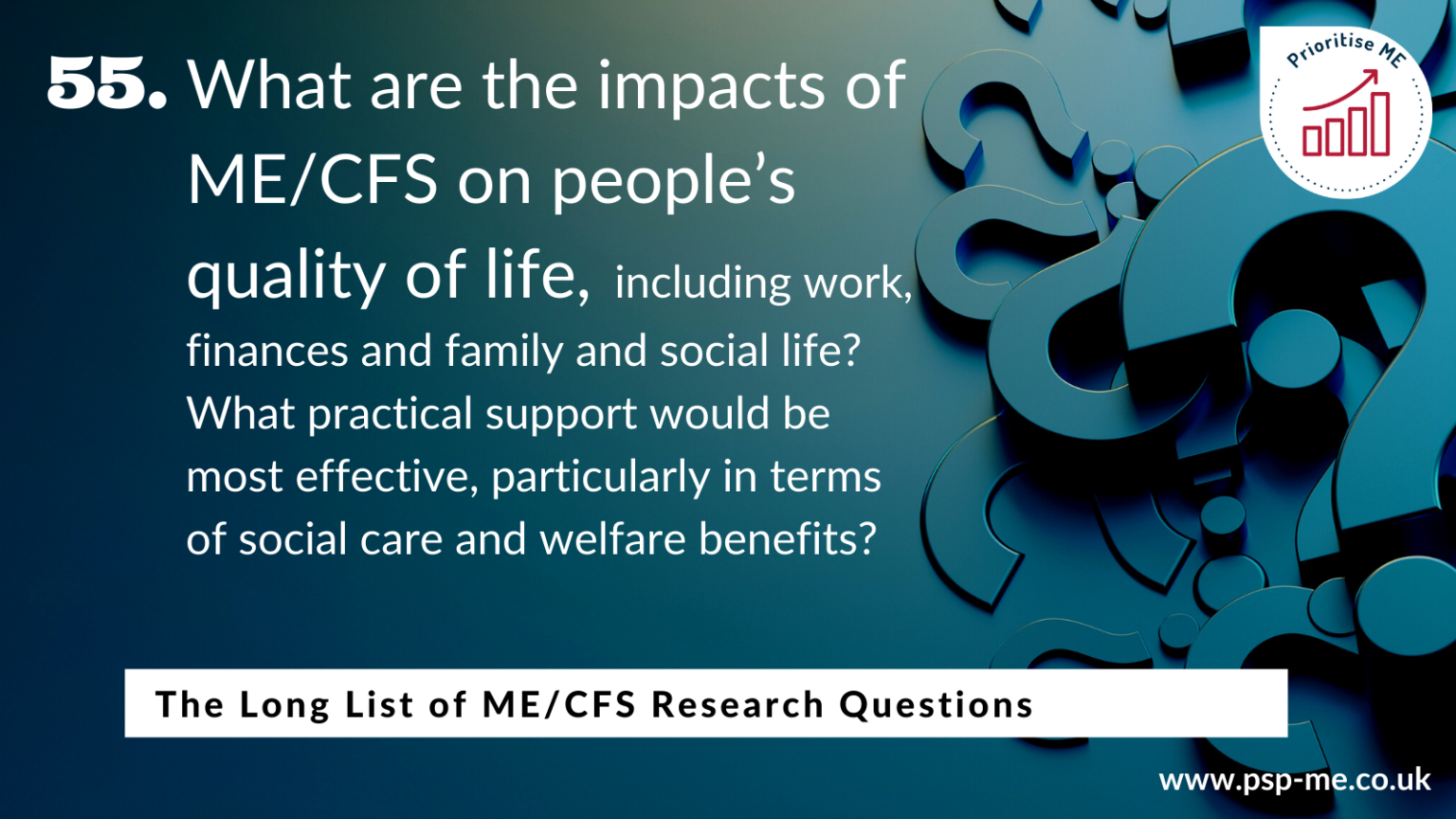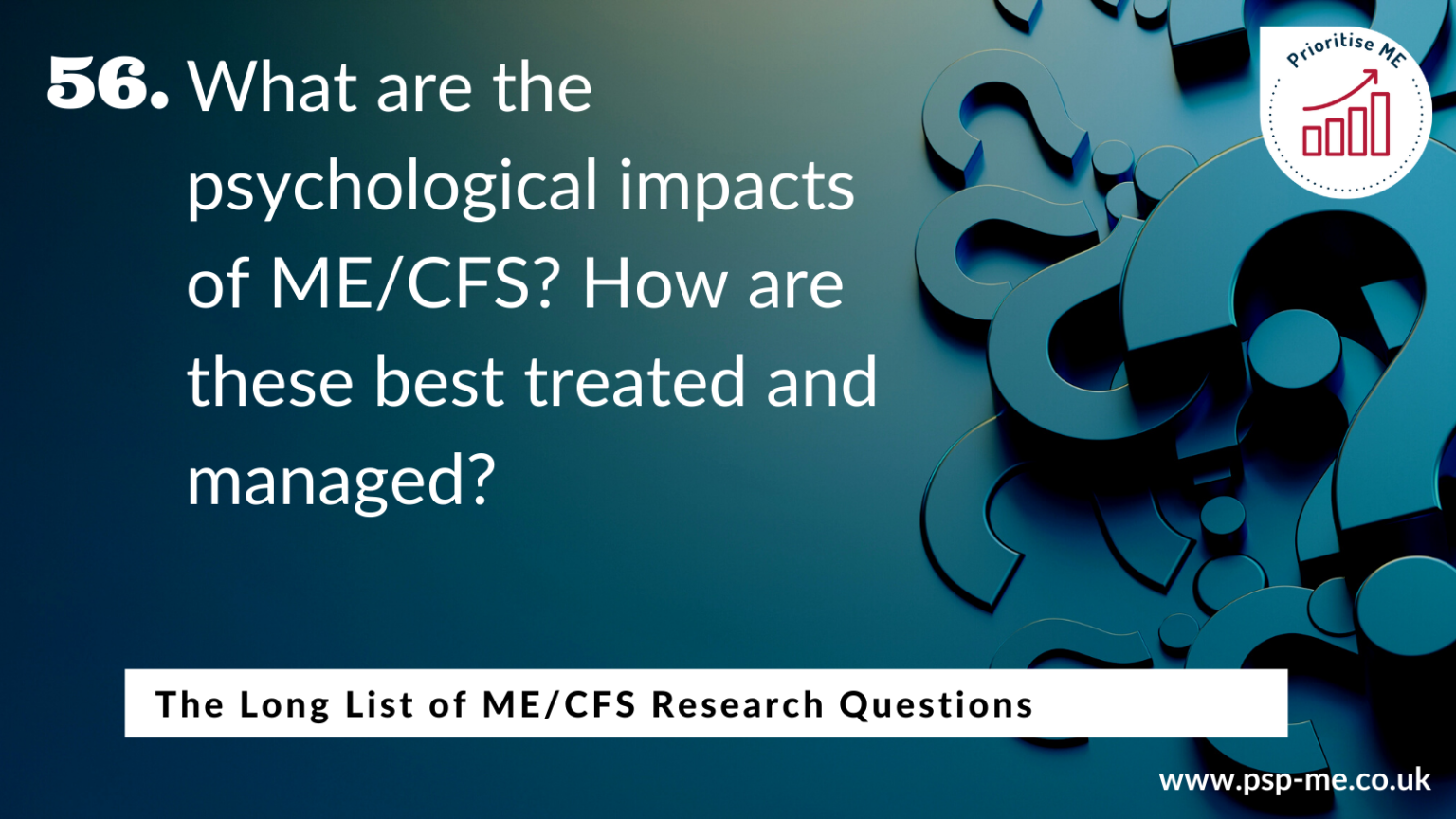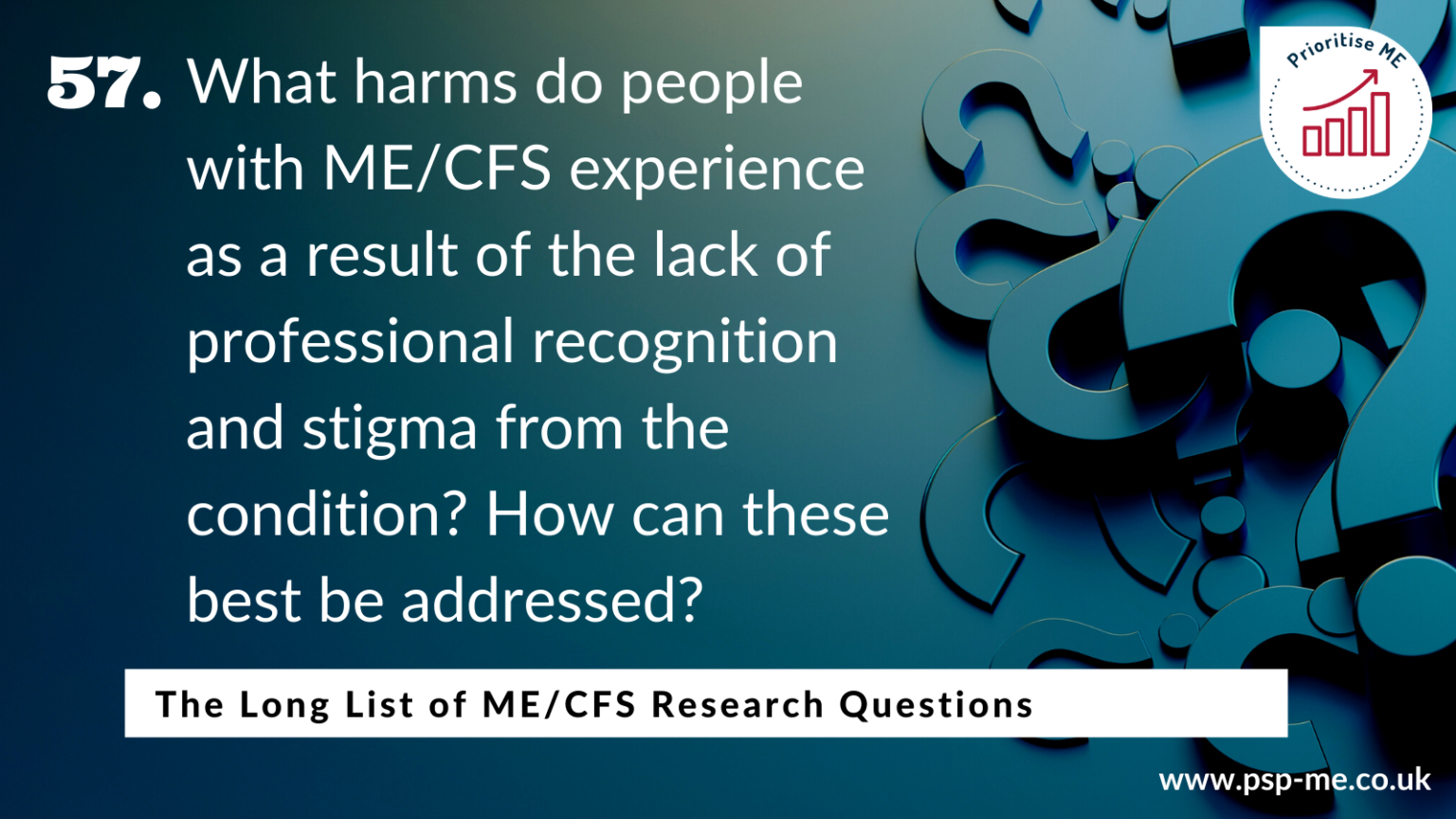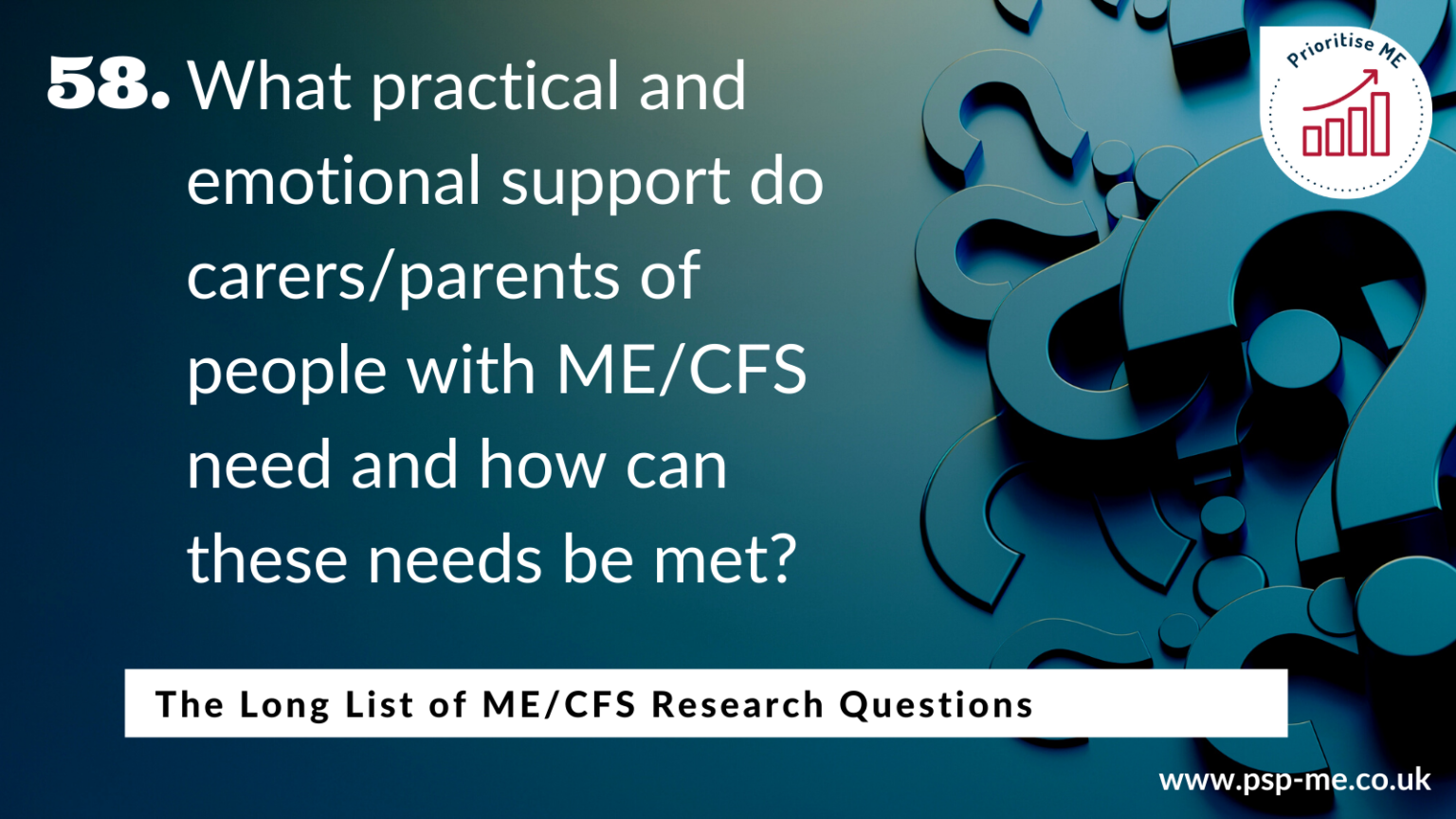The Long List of ME/CFS Research Questions
After our first survey, we grouped all the questions and research ideas submitted into summary questions. These were then prioritised in a survey and a further three workshops to reach the final Top 10+.
Read all of the summary questions below.
Causes and prevention
- Is there a genetic link to ME/CFS? If yes, how does this affect the risk of ME/CFS in families? Could this lead to new treatments?
- Why do some people develop ME/CFS following an infection? Is there a link with long-COVID?
- Is ME/CFS caused by a faulty immune system? Is ME/CFS an autoimmune condition?
- Are there factors that increase the risk of developing ME/CFS (such as stress, trauma or exposure to toxic chemicals)?
- Do hormonal imbalances (such as thyroid hormone or cortisol imbalances) cause ME/CFS and/or affect symptoms? Could this lead to new treatments?
- Can ME/CFS be prevented?
- Is ME/CFS infectious? Can it be transmitted to others?
- What causes ME/CFS to become severe?
- What can be learnt about the cause of ME/CFS from clusters of cases?
Diagnosis
- How can an accurate and reliable diagnostic test be developed for ME/CFS?
- How can the current approach to diagnosing ME/CFS be improved, to reduce delays and include other conditions commonly linked to ME/CFS, such as Postural Orthostatic Tachycardia Syndrome (POTS), Ehlers-Danlos syndromes (EDS) and Mast Cell Activation Syndrome (MCAS)?
Lifetime risks and course of the illness
- What is the typical course of ME/CFS over a lifetime, for children and adults? What influences this?
- Why do symptoms vary between people with ME/CFS? Why are there short term and long term changes in ME/CFS symptoms?
- Why are women at greater risk of ME/CFS than men?
- Are there different types of ME/CFS linked to different causes and/or how severe it becomes? Do different types of ME/CFS need different treatments and/or have different chances of recovery?
- How do some people recover from ME/CFS? How might this understanding help others?
- Do hormonal changes (such as during the menstrual cycle, pregnancy and menopause) affect ME/CFS symptoms? Does ME/CFS affect menstrual cycles, risks around pregnancy or menopause?
- Which conditions are commonly linked with ME/CFS, such as Ehlers-Danlos syndromes (EDS), Postural Orthostatic Tachycardia Syndrome (POTS), gut disorders and Mast Cell Activation Syndrome (MCAS)? Do they have the same root cause or does one cause the other?
- What causes people with ME/CFS to relapse and their symptoms to get worse? Are there ways to prevent or minimise relapses?
- Does ME/CFS affect life-expectancy?
- Are people from ethnic minorities at greater risk of developing ME/CFS? What barriers do they face to getting a diagnosis and treatment?
- Are there long-term effects of repeated post-exertional malaise (symptoms caused or made worse by physical, mental or emotional effort, which can be delayed)?
Treatment and management
- Can prompt treatment and advice when diagnosed prevent ME/CFS from getting worse over time? What does this mean for people whose illness starts gradually?
- Which existing drugs used to treat other conditions might be useful for treating ME/CFS, such as low dose naltrexone, or drugs used to treat Postural Orthostatic Tachycardia Syndrome (POTS)?
- Do complementary and alternative therapies benefit people with ME/CFS?
- How does ME/CFS impact on people’s physical health, and does their physical health impact on their ME/CFS? What can people with ME/CFS safely do to maintain their physical health?
- Does changing diet or taking supplements help people with ME/CFS?
- Is there a way for people with ME/CFS to monitor and manage their activities (such as using a heart rate monitor) to avoid triggering post-exertional malaise (symptoms caused or made worse by physical, mental or emotional effort, which can be delayed)?
- Are there ways to objectively measure how severely someone is affected by ME/CFS and whether their symptom levels are changing over time?
Underlying mechanisms and their treatments
- What is the biological mechanism that causes post-exertional malaise (symptoms caused or made worse by physical, mental or emotional effort, which can be delayed) in people with ME/CFS? How is this best treated and managed?
- What causes the central and peripheral nervous systems (brain, spinal cord and nerves in the body) to malfunction in people with ME/CFS? Could this understanding lead to new treatments?
- How are mitochondria, responsible for the body’s energy production, affected in ME/CFS? Could this understanding lead to new treatments?
- Does the immune system continue to over-function or under-function in some people with ME/CFS to cause symptoms? What does this mean for treatment and risks from infections and vaccinations, including COVID-19?
- What happens to muscle function in people with ME/CFS?
- What causes some people with ME/CFS to become intolerant to alcohol, chemicals and/ or medicines?
- What are the links between nervous, digestive and immune systems that could cause ME/CFS symptoms?
- How is the transport of nutrients/electrolytes in and out of cells affected in people with ME/CFS? Could this understanding lead to new treatments?
- Does poor delivery or use of oxygen within the body cause ME/CFS symptoms? If so, how is this best treated?
- Does continuing viral or bacterial infection cause ME/CFS symptoms? If so, are antivirals or antibiotics effective treatments?
Health services
- What would be the make-up of a high-quality specialist service for people with ME/CFS? Would this improve the treatment and care of people with ME/CFS?
- Why don’t some health professionals accept ME/CFS is a serious illness? What would help them to recognise and respond appropriately to people’s symptoms?
- How can the needs of people with ME/CFS best be met when accessing and using health and social care services (for example while in hospital)?
- Based on people’s experiences, what does ongoing monitoring and care for people with ME/CFS need to include?
Causes of symptoms and their treatment
- What causes sensory problems in people with ME/CFS (such as sensitivity to light, noise, smell and touch)? How are these best managed and treated?
- What causes orthostatic intolerance (e.g. feeling dizzy or unwell on standing or sitting up) or problems controlling body temperature? How are these best managed and treated?
- What causes headaches and migraines in ME/CFS? How are these best treated and managed?
- What causes skin problems in ME/CFS? How are these best treated and managed?
- What causes sleep problems and sleep pattern changes in people with ME/CFS? How are these best managed and treated?
- What causes ongoing fatigue (tiredness or exhaustion) in people with ME/CFS? How is this best treated and managed?
- What causes gut problems, difficulties with swallowing and eating in people with ME/CFS? How are these best managed, for example with tube feeding for people who are very severely affected?
- Do heart problems, changes to blood cells or blood/lymph circulation cause ME/CFS symptoms? If so, how are these best treated?
- Do postural or structural problems in the head, neck and spine cause symptoms of ME/CFS? If so, how are these best treated?
- What causes pain in people with ME/CFS? How is this best treated and managed?
- What causes brain fog in people with ME/CFS? How is this best treated and managed?
Social and psychological impacts and support
- What are the impacts of ME/CFS on people’s quality of life, including work, finances and family and social life? What practical support would be most effective, particularly in terms of social care and welfare benefits?
- What are the psychological impacts of ME/CFS? How are these best treated and managed?
- What harms do people with ME/CFS experience as a result of the lack of professional recognition and stigma from the condition? How can these best be addressed?
- What practical and emotional support do carers/ parents of people with ME/CFS need and how can these needs be met?
- What support do pupils and students with ME/CFS need to help them with their education?

